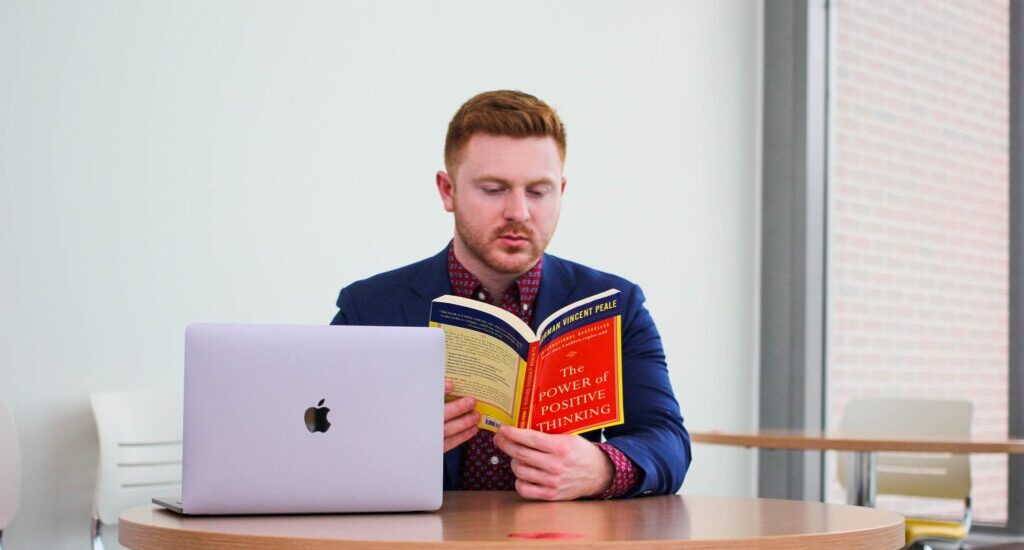Are you curious about why people think, feel, and act the way they do? If you love understanding others and finding ways to help them, pursuing an online bachelor’s degree in psychology might be the perfect route for you. Here are ten simple signs it could be a great fit. 1. You love learning about […]
Science & Mathematics
What to Do After an Online Bachelor’s Degree in Psychology
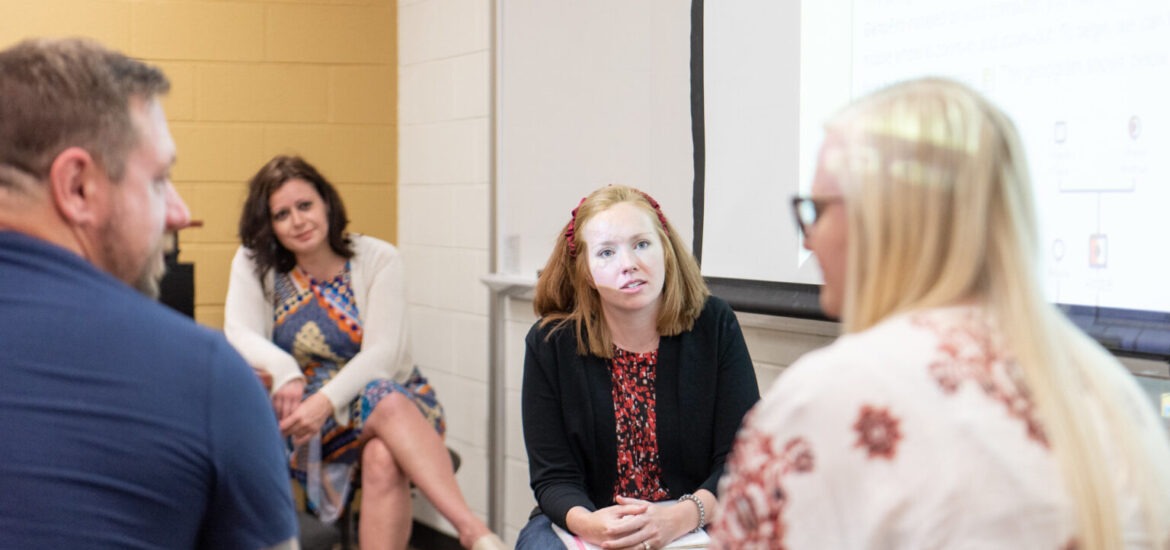
Exploring Career Paths After a Bachelor’s in Psychology Online Earning a bachelor’s degree in psychology online is an exciting achievement, but it can also leave students wondering what comes next. Psychology is one of the most flexible majors, preparing graduates to think critically, understand human behavior and communicate effectively across many fields. If you’re asking […]
7 Signs You Should Earn an Online Computer Information Systems Degree

Is a Career in Computer Information Systems Right for You? If you’re asking yourself what computer information systems is and whether a future in tech is right for you, you’re not alone. In today’s digital economy, earning an online computer information systems degree is one of the smartest ways to prepare for an evolving, in-demand […]
What Can I Do with a Psychology Degree?
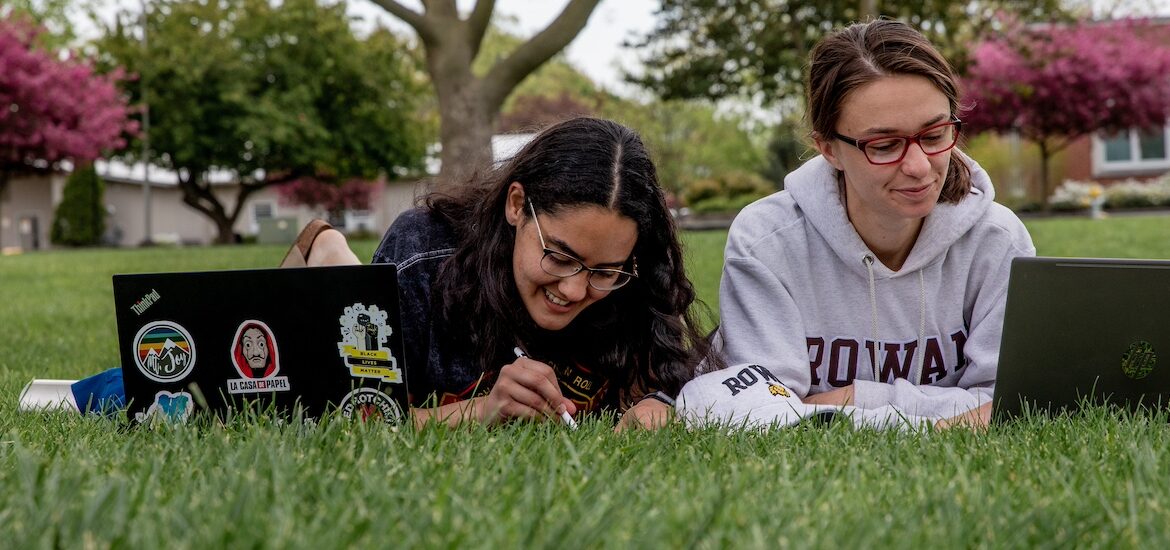
A Helpful Guide for Aspiring Psychology Majors Whether you’re fascinated by how people think, eager to help others thrive or curious about what drives human behavior, a psychology degree is a powerful way to turn curiosity into a career. This guide shares all things bachelor’s degree in psychology related: what psychology is and its various […]
12 Diverse Career Paths With a Master’s in Cybersecurity
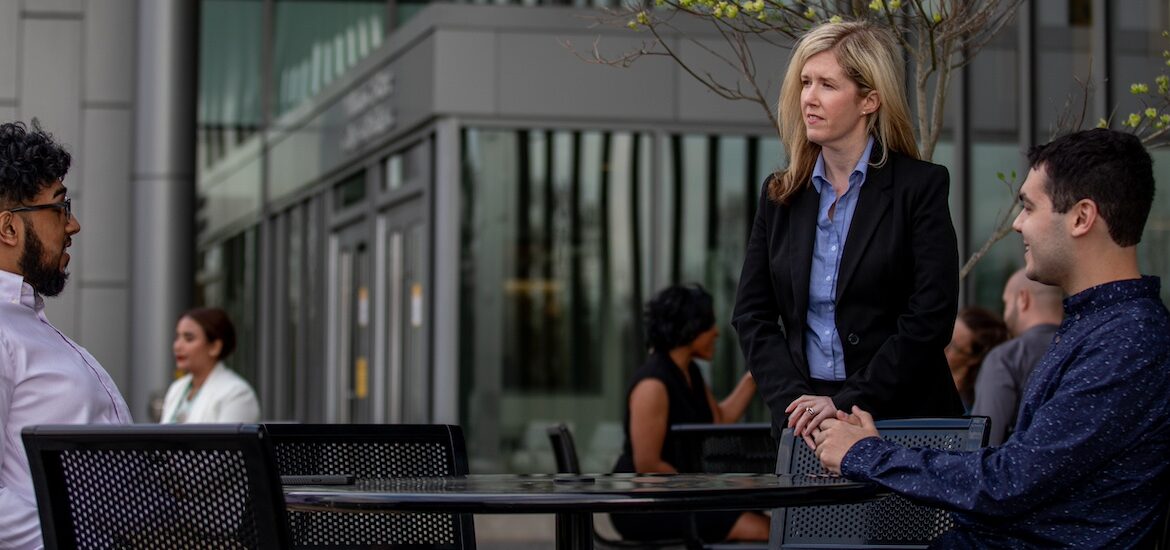
The Wide Range of Career Settings for Cybersecurity Experts Nearly every industry needs cybersecurity professionals, offering incredible variety in where—and how—you can work. From government agencies and financial institutions to healthcare systems, tech startups and global corporations, the demand for skilled experts with a cybersecurity degree is widespread and growing. You might find yourself working […]
7 Signs It’s Time to Get Your Master’s in Cybersecurity Online
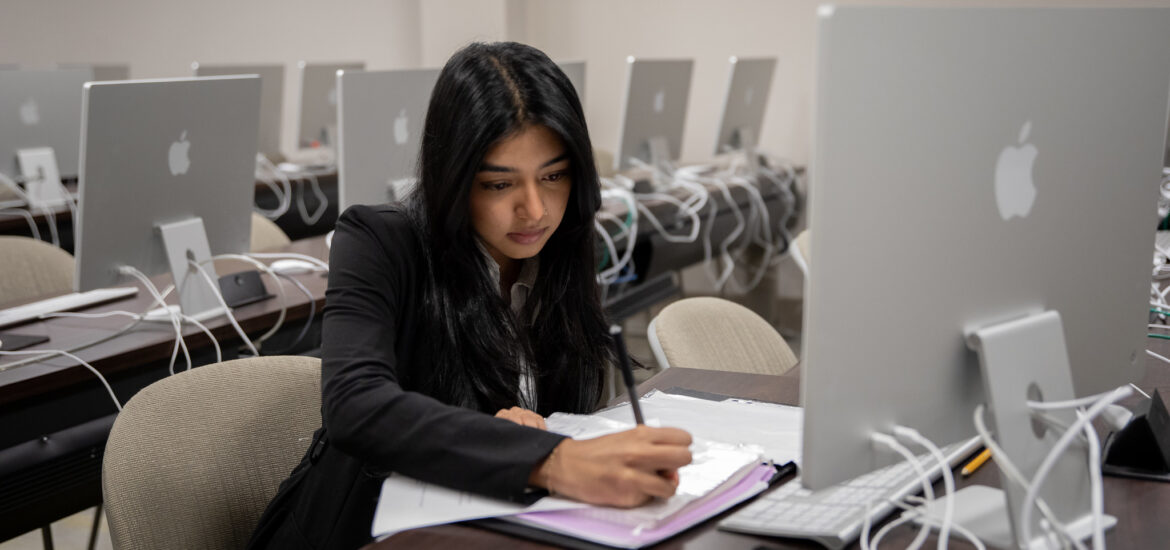
Why a Master’s in Cybersecurity Online Is a Smart Career Move Cybersecurity isn’t just a tech issue anymore. It’s a national priority, a business necessity, and a rapidly growing career path. From hospitals and banks to schools and defense systems, digital threats are everywhere—and the demand for skilled cybersecurity professionals is more urgent than ever. […]
How Long Does It Take to Become a Psychologist?
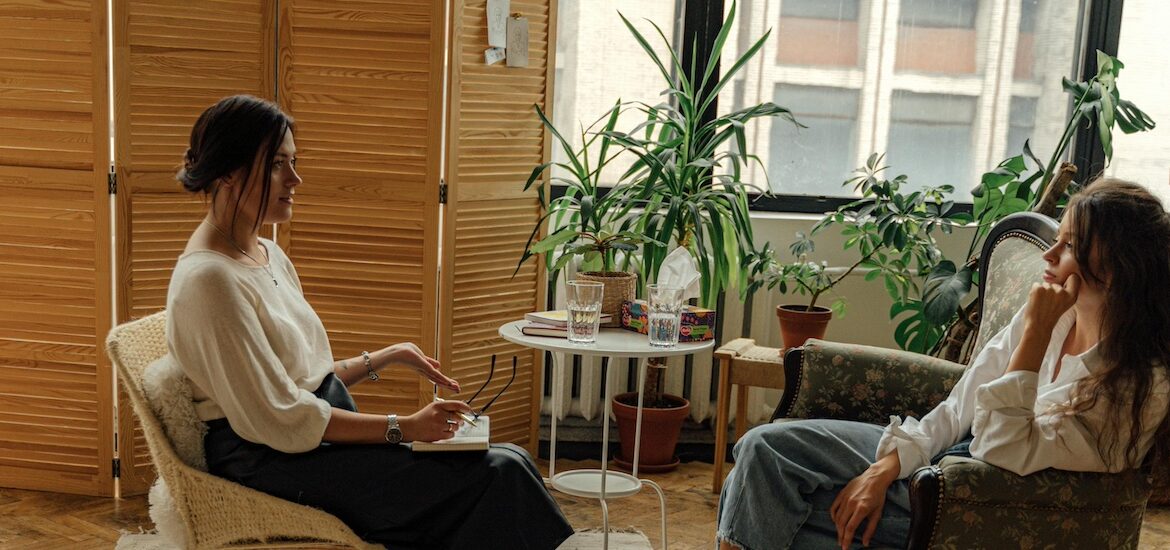
Your Journey to Becoming a Psychologist Embarking on the path to become a psychologist is a journey that requires dedication, time, and a significant investment in education and training. Wondering, “How long does it take to become a psychologist?”? Well, the answer varies based on your chosen specialty and educational route. This guide will break […]
What Can You Do With a Molecular and Cellular Biology Degree?
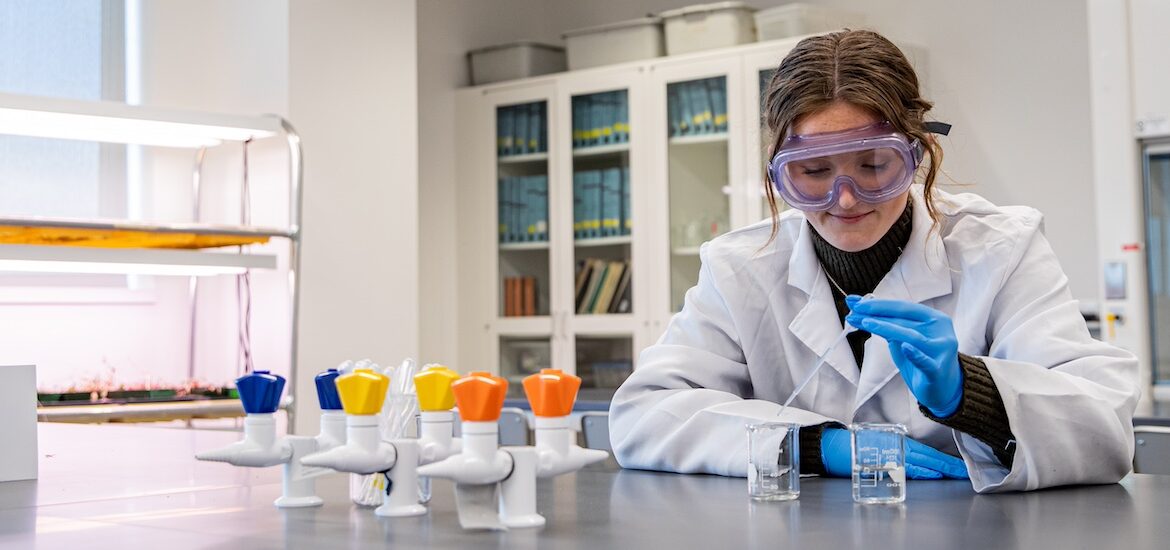
Information That Aspiring Molecular and Cellular Biology Majors Need To Know In simple terms, molecular and cellular biology is the study of how living things work at the smallest levels. It dives deep into the inner workings of cells, the molecules they’re made of, and how those molecules interact to keep us healthy—or sometimes, make […]
So You Want to Be a Medical Illustrator? Here’s How to Get Started
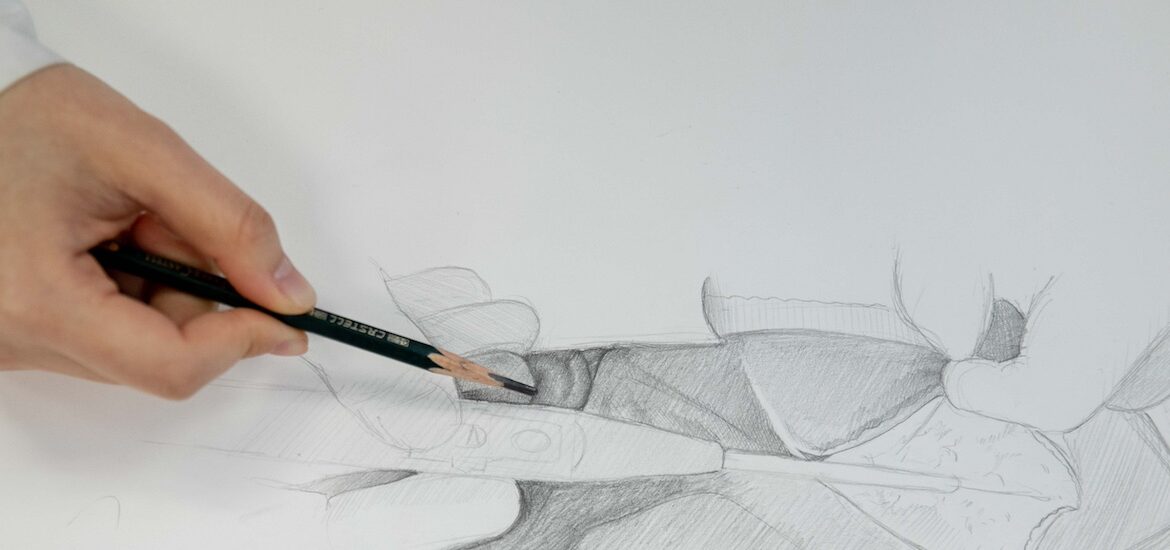
Step One: Consider Majoring in Biomedical Art & Visualization Ever wished you could blend your love of art with your fascination for science? Becoming a medical illustrator might just be the perfect career path. Medical illustrators are the creative pros behind the highly detailed visuals in textbooks, research papers, surgical guides and patient education materials. […]
What Can You Do With a Computer Science Degree?
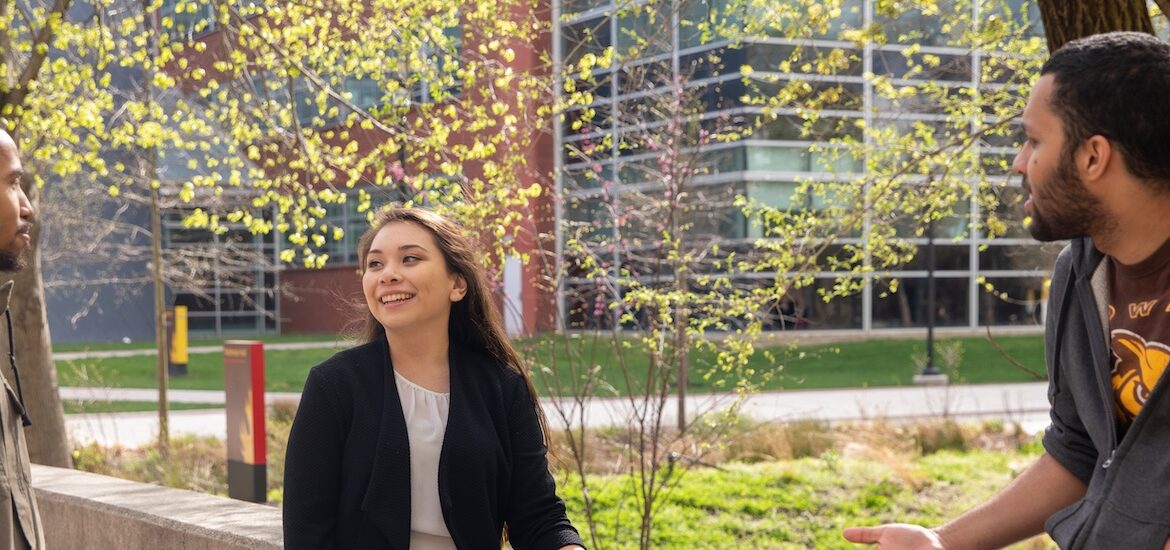
Whether you’re passionate about developing groundbreaking software, designing secure networks, or exploring artificial intelligence, a computer science degree equips you with the skills and knowledge to thrive in the ever-evolving digital landscape. This guide shares all things computer science: what the field is, what you’ll learn, what you can do, career options for computer science […]
Why an Online Master’s in Cybersecurity Is a Smart Career Move
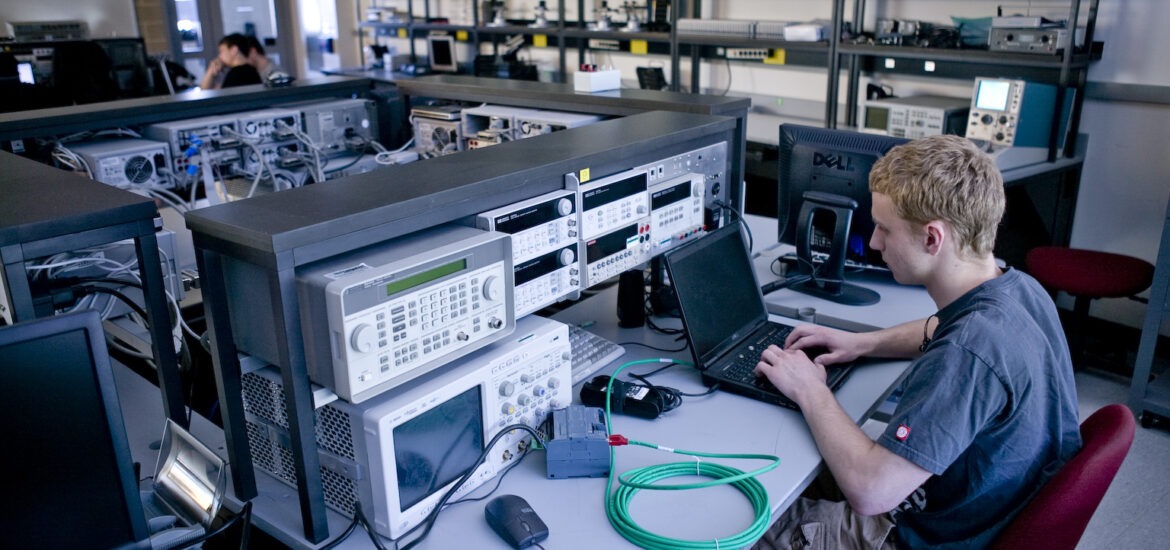
How an Online Master’s in Cybersecurity Prepares You for the Future In our increasingly digital world, the need for skilled cybersecurity professionals is more critical than ever. As cyber threats evolve and technology advances, skilled professionals are essential for protecting sensitive data and digital assets. An online Master’s in Cybersecurity gives graduate students the expertise […]
13 Powerful Reasons to Get Your Bachelor of Psychology Degree Online
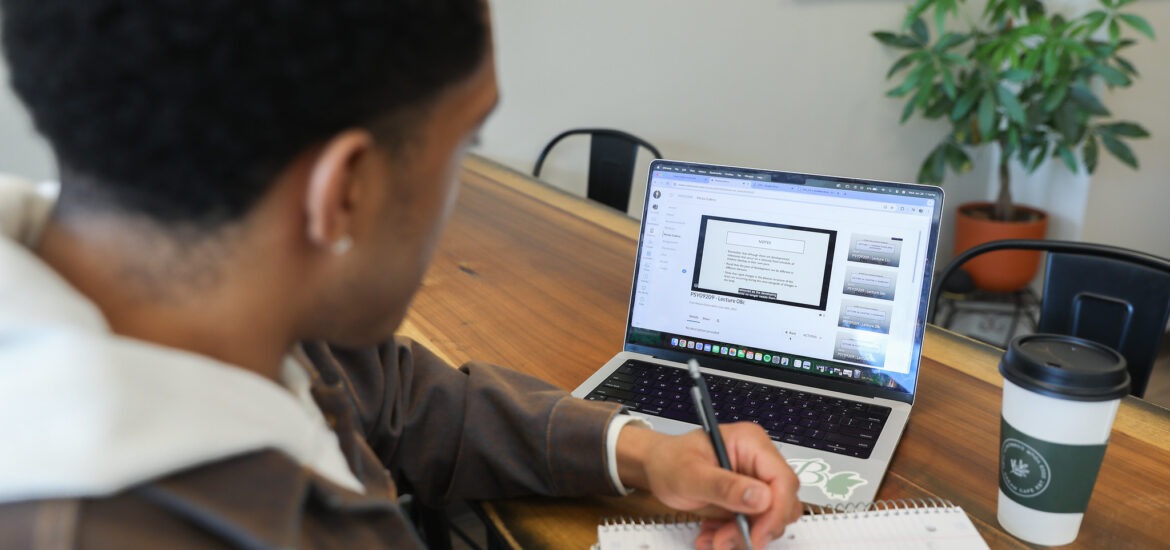
Can You Really Get a Bachelor of Psychology Degree Online? Let’s start with a popular question: Can you get a bachelor of psychology degree online? Yes! Earning your bachelor of psychology degree online is not only possible but also an increasingly popular option for students seeking flexibility and career advancement. Accredited programs, like Rowan University’s […]
12 Exciting Jobs You Can Pursue with an Online Psychology Degree
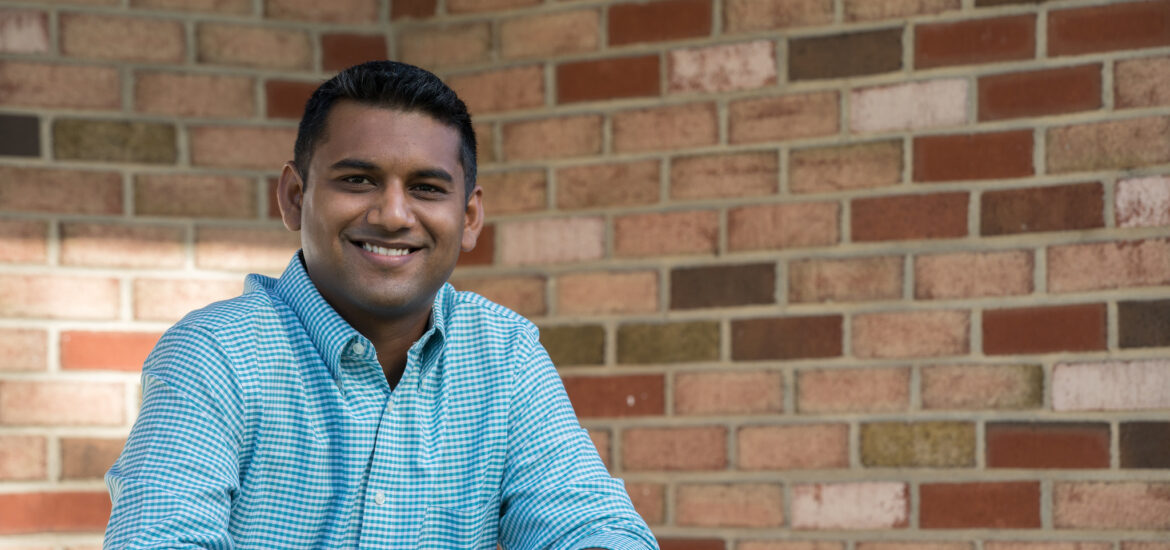
How an Online Psychology Degree Can Open Doors for You Thinking about earning an online bachelor’s degree in psychology but unsure where it can take you? From mental health counseling and forensic psychology to corporate leadership, an online psychology degree can unlock a range of rewarding careers. Accredited programs such as Rowan University’s online psychology […]
Online Computer Technology Degrees: What You Need to Know
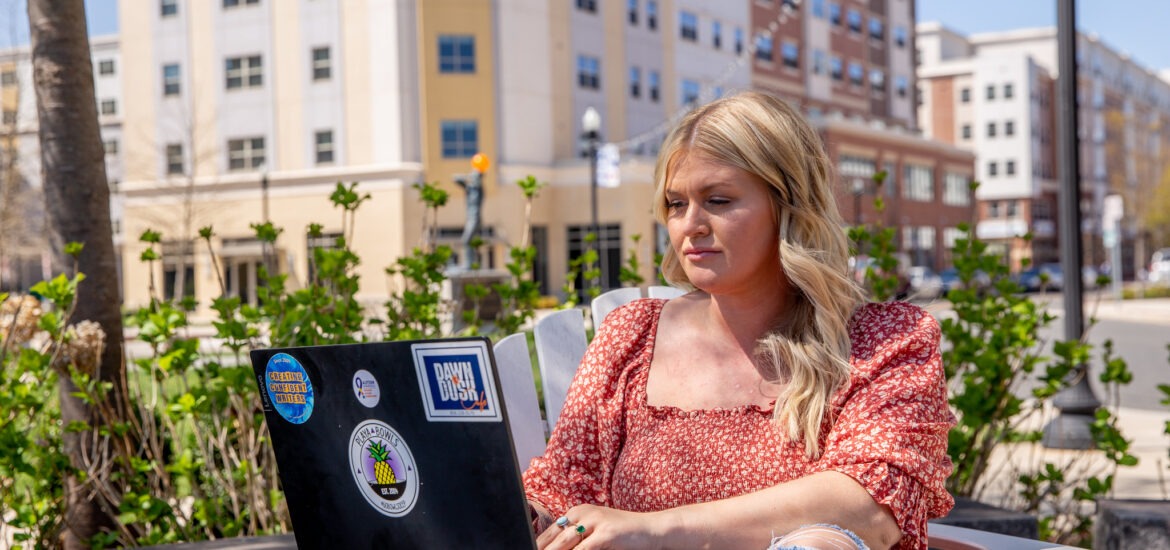
Is an Online Computer Technology Degree Right for You? Picture yourself in a career where you’re not just keeping up with technology—you’re driving it forward. Whether you’re analyzing business systems, solving cybersecurity challenges, managing IT networks, or supporting cutting-edge tech solutions, an online computer technology degree—or a bachelor’s in computer information systems— can help you […]
What Can You Do With A Data Science Degree? One Professor Explains The Possibilities [VIDEO]
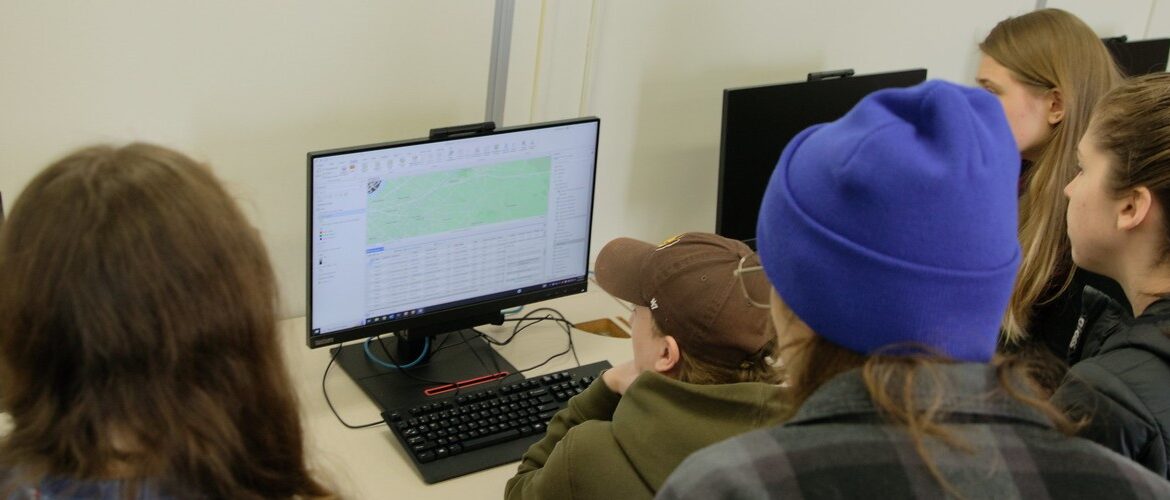
Data Science at Rowan University: Real-World Skills, Hands-On Experience, and Endless Career Opportunities Charalampos “Babis” Papachristou, Ph.D., is an Associate Professor and Assessment Coordinator for the College of Science and Mathematics at Rowan University. Here, he discusses the possibilities for careers and programs for students pursuing a Data Science degree at Rowan, whether those students […]
How a Computer Information Systems Degree Accelerates Your Career
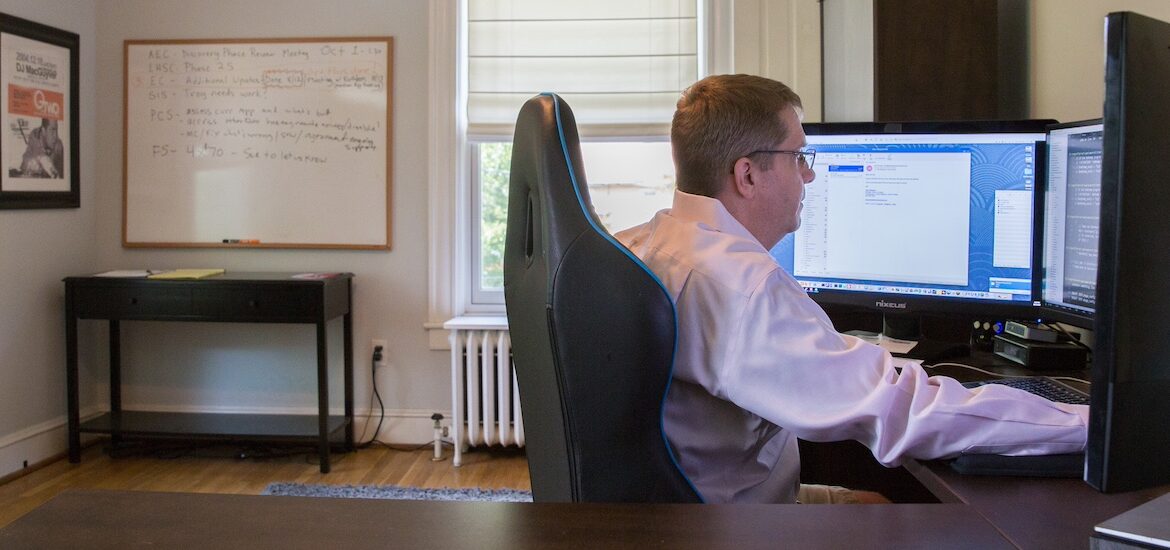
Rowan University’s Information Technology Degree Prepares Grads for Leadership Roles in IT In today’s rapidly evolving digital landscape, the demand for skilled leaders in Information Technology (IT) has never been higher. Earning a bachelor’s degree in computer technology helps job candidates stand out in a competitive field. Rowan University’s Bachelor of Arts (B.A.) in Computer […]
13 Insightful & Informative Reasons To Get an Online Cybersecurity Degree

Rowan University Meets Growing Employer Demand Launching Its Online Master’s In Cybersecurity Degree Cybersecurity is one of the fastest-growing and most in-demand fields in today’s workforce. With the rise in cyberattacks and data breaches, professionals skilled in protecting digital information are critical to every industry. In 2024 alone, the United States experienced a significant number […]
Two Cybersecurity Graduate Students Share Professional Goals
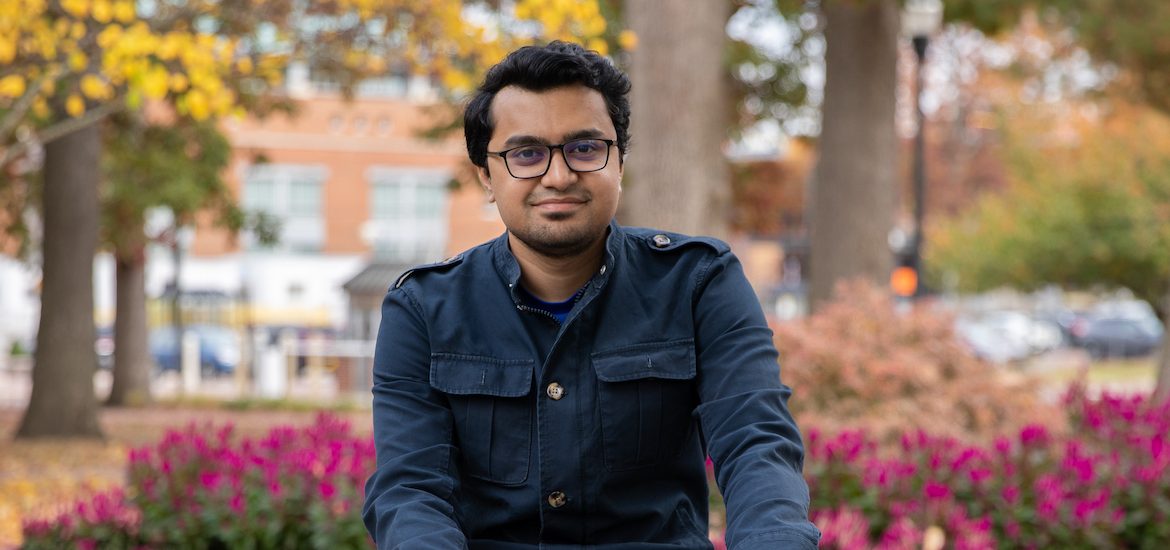
This story is one within a multi-part series highlighting the aspirations, hopes and dreams of a few of Rowan University’s international students. Read the other stories. Meet Sultan from Hyderabad, India and Joseph from Sierra Leone, two graduate students pursuing masters’ degrees in Cybersecurity. What is your long-term professional goal or dream career? “To help […]
The Versatility of a Physics Degree: Beyond the Math [VIDEO]
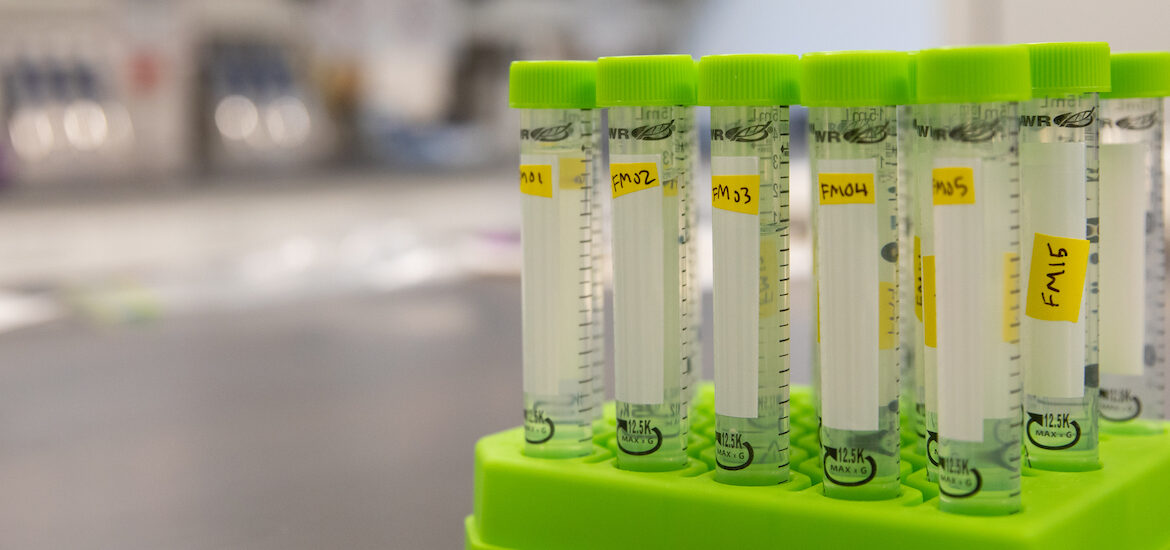
Have you ever wondered what you can do with a physics degree? Or what path could it take you on for your future? Natalie Page, a doctoral candidate studying Materials Science & Engineering, is here to tell you more about what physics means to her. The opportunities are endless with a physics degree. Not only […]
Students Witness Once-in-a-Lifetime Astronomy Event [VIDEO]
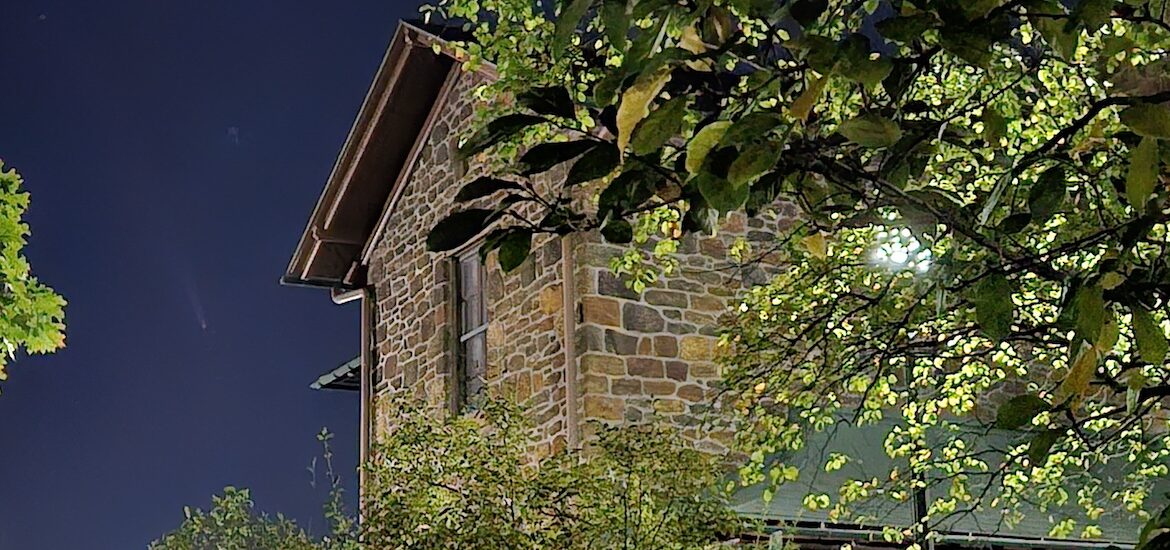
Astronomy faculty at Rowan University invite students across campus to experience rare comet from observation deck of Science Hall If you’ve ever dreamed of stargazing or witnessing rare celestial events, Rowan University is the perfect place to make that dream a reality. Last week the campus hosted an incredible comet viewing event, attracting students, faculty, […]
My Favorite Class: Observational Astronomy [VIDEO]
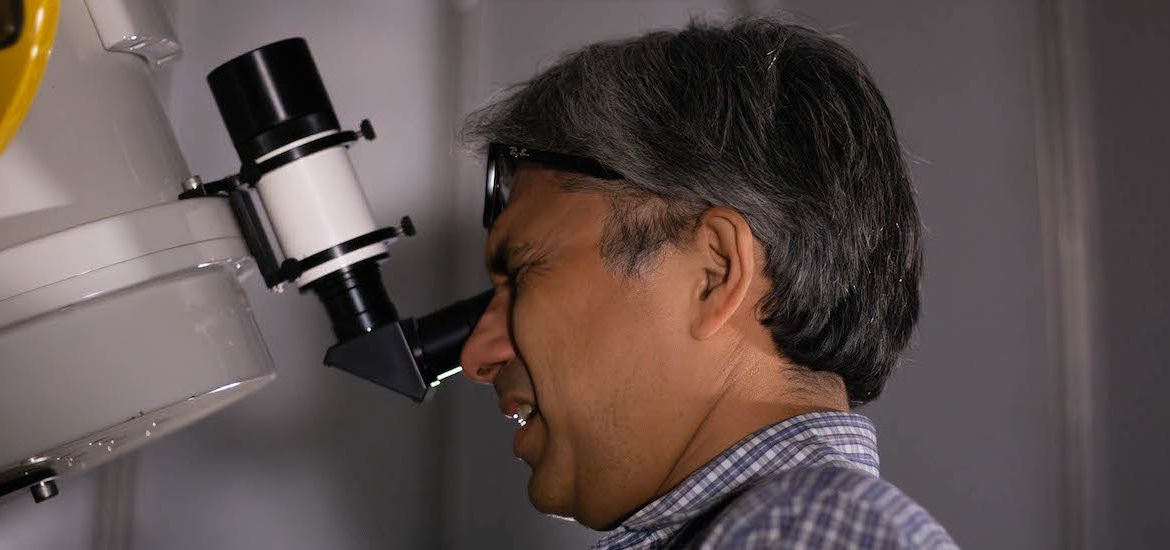
This story is a part of the “My Favorite Class” series. With 100+ majors and countless areas of faculty expertise across campus, dip into one of these classes to fulfill your Rowan University course requirements. A science class so interesting to even non-STEM majors take it as an elective, Observational Astronomy (ASTR 11240). Observational Astronomy offers students […]
Two Computer Science Graduate Students at Rowan

This story is one within a multi-part series highlighting the aspirations, hopes and dreams of a few of Rowan University’s international students. Read the other stories. Meet Durga P. from India and Tarun T. from India, two graduate students in the computer science program. What is your long-term professional goal or dream career? “I want […]
Bangladeshi Student Thrives in Computer Science at Rowan University

This story is one within a multi-part series highlighting the aspirations, hopes and dreams of a few of Rowan University’s international students. Read the other stories. Meet Tilpa M. P., a graduate student and international student from Dhaka, Bangladesh, studying for her master’s degree in computer science. How will this degree support your dreams and […]
Nicholas K’s Journey to CERN in Switzerland

A Dive Into the Physics Major at Rowan University With a Graduating Senior Meet Nicholas K, a senior graduating this December, majoring in physics, minoring in astronomy & mathematics, and a CUGS (certificate of undergraduate study) in computer science. Tell us more about your CERN (European Organization for Nuclear Research) experience. “I knew about this […]
Indian Graduate Reflects on His Rowan University Journey

This story is one within a multi-part series highlighting the aspirations, hopes and dreams of a few of Rowan University’s international students. Read the other stories. Meet Somyatanjan R, a graduate student and international student from India, majoring in computer science. What is your long-term professional goal or dream career? “My long-term professional goal is […]
Pharmaceutical Science Graduate Student’s Career Aspirations

This story is one within a multi-part series highlighting the aspirations, hopes and dreams of a few of Rowan University’s international students. Read the other stories. What Rowan professors or Rowan classes have been most helpful and enlightening to you, and how? “To begin with, the majority of the professors at Rowan University exhibit a […]
Empowering Dreams: Sreypich H’s UX/UI Design Journey
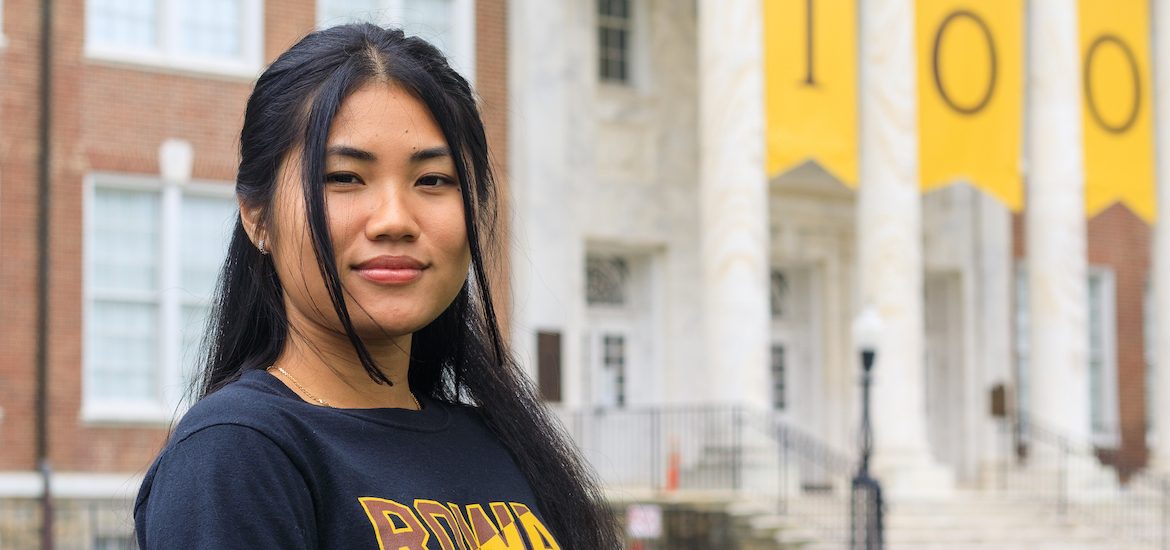
This story is the first in a multi-part series highlighting the aspirations, hopes and dreams of a few of Rowan University’s international students. Read the other stories. Meet Sreypich H, a senior and international student from Phnom Penh, Cambodia, majoring in computer science. What is your long-term professional goal or dream career? “My long-term professional […]
Bio Sciences Major on Academics and Campus Life

Nathanael A. is a senior commuting transfer student (from Rowan College of South Jersey) here at Rowan University originally from Lindenwold, New Jersey (Camden County) pursuing a BS in biological sciences; with minors in Pre-Health and Chemistry. When asked what inspired him to choose his major Nathanael shared, “I would like to get to medical […]
A Day in the Life of a Biology Major at Rowan

Originally from Trenton, NJ (Mercer County) first-generation senior biological sciences major Yesenia F. heads into her final semesters at Rowan, and there’s so much more to come for her. About her major Yesenia shared, “I have always been very curious about the dynamics and mechanisms by which science is able to revolutionize the world and […]
Finishing His College Career Strong With a Summer Class

Today, we meet Jonathan P, a senior biological sciences major from Williamstown, NJ (Gloucester County), here to talk about his experience with taking summer classes at Rowan and how it’s been beneficial to him. Jonathan enrolled in Intro to Biochemistry this summer at Rowan. As it relates to his experiences in the class, Jonathan […]
Building Stronger Connections Through Rowan’s Summer Classes

Today, we meet Richard R, a senior biological sciences major on a pre-vet track, from Burlington, NJ (Burlington County), here to talk about his experience with taking summer classes at Rowan and how it’s been beneficial to him. This summer Richard completed Organic Chemistry, Physics II, (both online) and Plant Diversity (in person) summer […]
Veterinary Breakthrough Helps the Goat

An interdisciplinary, collaborative space, Studio 231 within the School of Innovation & Entrepreneurship helps to bring the best ideas to life – including, this time, giving a new lease on life to a baby goat who was unable to walk. The story of Fortunato the goat highlights the ingenuity – not to mention the impact […]
#PROFspective: Devon C on Living with a Hidden Disability

Today, we hear from Devon C, senior biological sciences major from Williamstown, NJ (Gloucester County). Devon is sharing her story of living with an invisible disability. Would you mind sharing your experience with your disability? “I have a rare invisible disability called Idiopathic Hypersomnia. The best way I can describe it to someone is that it’s […]
A Closer Look At PULLA Tracker and its Founder Siena Rampulla

Siena Rampulla is a senior student here at Rowan University, originally from Holmdel, NJ (Monmouth County). Siena is a Psychology major, with an honors concentration and a minor in Journalism. When asked to share more about her major, Siena explained she originally planned to go on the pre-med track, which was a long-term dream of […]
Rowan University Biological Sciences Major Mia Shute Shares Her Aspirations for the Future

Today we feature sophomore commuter-student Mia Shute from Mullica Hill, NJ (Gloucester County). Mia is working towards her bachelor of science degree in Biological Sciences, as well as an Honors Concentration within the John H. Martinson Honors College. Mia is here to tell us about her college experience and aspirations within the Biological Science field. […]
Fadi Khan Talks About New Beginnings

Today we feature student leader Fadi Khan (he/him) of Pleasantville, NJ (Atlantic County). Fadi is a senior Biological Sciences major and lives on campus in Holly Pointe Commons, where he is also a Community Assistant. A first-generation college student, Fadi shares with us his perspectives on life, his major, and getting the most out of […]
#PROFspective: Senior Lauren Cooper Says “Opportunities for Molecular and Cellular Biology Majors are Endless”

Lauren Cooper is a senior here at Rowan University, from Sussex County, NJ. Lauren is majoring in Molecular and Cellular Biology (MCB) along with her minors in pre-medical and chemistry. Why did you choose Rowan? I chose Rowan because it felt like home when I stepped on campus. I loved the size of the school, […]
Successful Alumnus On Where Computer Science Can Take You

Joseph Albanese of Gloucester County, NJ is a 2021 Rowan University alumnus who majored in Computer Science. Joseph works for the company Freefly Systems as a software engineer for the organization’s Alta X drone technology. Whether that be through dealing with maintenance on the front and backend of coding on drones, Joseph Albanese is a […]
Beyond the Classroom: How Two Students Blend Art and Science

Alumni Success Stories Explore how our alumni propel their Rowan University education into lasting success, as highlighted through our alumni success series. From Rowan University student to lifelong member of the Rowan University Alumni Association, Rowan Profs thrive at every stage of their journey. Go Profs! Internship & Experiential Learning Stories Learn how Rowan Profs […]
Getting to Know the Molecular & Cellular Biology Major with Lauren Staman

Lauren Staman, a senior Molecular & Cellular Biology major, speaks with us about the field, her experience conducting research at Rowan University, and tips for students looking into the major. Can you describe molecular and cellular biology? It’s basically a field of biology that’s very specialized yet interdisciplinary. It deals with the inner workings of […]
Hispanic Heritage Month #PROFspective: Law & Justice, Psychology Double Major Katerine A. on Not Hiding Her “Personality, Culture or Heritage”

Today, as part of our Hispanic Heritage Month #PROFspective series, we feature Junior Katerine A. (she/her) from Bronx County, New York. Katerine is double majoring in Law & Justice Studies and Psychology. She discusses her Rowan experience, staying true to herself, and gives advice to future students. What is your student experience here at Rowan? […]
Hispanic Heritage Month #PROFspective: Senior Biological Sciences Major Esteban Nieto on a “New Community” at Rowan

Why did you decide to attend Rowan University? I wanted something different, something far from home. A new community, you know? Getting out of my comfort zone. What has your experience as a student been like? It’s been pretty good, honestly. Overall, I do enjoy it here. It’s very different. What attracted you to the […]
Biology Major Aryana Marquez on Anti-Cancer Research

Today we highlight Aryana Marquez, a third-year Biological Sciences major with a minor in Chemistry. Marquez discusses her research with organic synthesis of cancer-treating pharmaceuticals, medical school goals, and being a woman of color in STEM. Why did you choose Rowan? I applied to 11 schools; I think I got into about seven of them, […]
Transfer Profs: Dante and Daniel’s Stories

Today we feature incoming transfer students Dante P. (they/them) and Daniel from Gloucester County and Cumberland County, respectively. Both give insights into their majors, why they’re excited to start classes at Rowan, and give advice to future transfer students. Welcome to Rowan! Could you share with us one thing you are looking forward to at […]
Katarina Carmona on Diversity in Academia
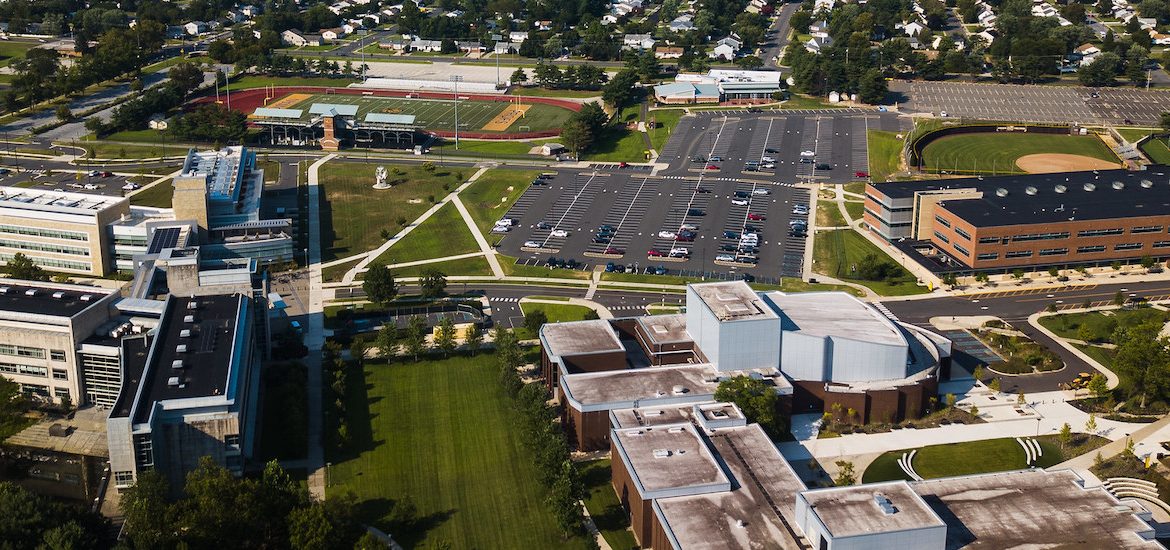
Like what you see? LEARN MORE Story by:Natalie DePersia, senior public relations major Edited by:Joseph Conte, junior music industry major Photos courtesy of: Katarina Carmona
Jon Witkowski Applies Data Science in Healthcare Internship

Internship & Experiential Learning Stories Learn how Rowan Profs go Beyond the Classroom to grow professionally, as well as personally, through internships and other experiential learning. Experiential learning includes hands-on learning opportunities provided through research, student clubs, campus leadership, student worker jobs, service-learning projects and volunteerism. In addition, Rowan’s Office of Career & Professional Development provides career support that’s more than just […]
Sarah Forsman’s Story of Achievement

Internship & Experiential Learning Stories Learn how Rowan Profs go Beyond the Classroom to grow professionally, as well as personally, through internships and other experiential learning. Experiential learning includes hands-on learning opportunities provided through research, student clubs, campus leadership, student worker jobs, service-learning projects and volunteerism. In addition, Rowan’s Office of Career & Professional Development provides career support that’s more than just […]
Get to Know #Rowan2026 Science & Math Majors

Today we feature incoming first year students Ariana Benitez, Soorya B., Abby Titus (she/they), Leila Underwood (she/her), and Dallas Hainsworth (she/her). Ariana is from Bergen County, NJ and will be living on campus as a Psychology and Exercise Science major. Soorya is from Princeton, NJ (Mercer County) and will be living on campus as a […]
Marko Pantovic: CS Student & global Athlete

Today we speak to Marko Pantovic, a senior Computer Science major and basketball student-athlete from Belgrade, Serbia. Marko transferred to Rowan University from Maryville University in Missouri. Marko tells us about the chance experience that led him to Rowan and shares his advice for future international students.

How did you end up transferring to Rowan?
In the summer of 2018, my brother was just getting married. He had been dating his girlfriend for eight years. They both met at Drexel. They had a wedding in Philly that summer. My family and I decided to look at schools around the area because they lived in Mullica Hill, NJ. I decided to look at Rowan. The school looked great, and they had the major I wanted to do. The D3 level doesn’t matter. Basketball doesn’t matter. Joe Crispin, the Rowan Men’s Basketball coach, set up a tour for me right after I email him. I did the tour, and then I committed right on the spot. I loved everything about Rowan. It was also great to be near my brother for the first time in years.
How did moving closer to your brother affect your college career?
My brother became more of a father figure towards me, which I didn’t expect. I really appreciated him because he’s been pushing me to be my best, not just in school, but also on the court and with everything else. He’s shown me how it looks like living life here. I loved every second I’ve been here.

What was it like, transitioning to life in the United States?
Well, I know some people from back home who felt so homesick they had to go back home. I have never felt that way, but I think it was because my older siblings came to the United States as well. I did a prep year before going to college, and there were three or four Serbs there, as well as other international students. The next year, I felt by myself. The holidays and winter break were especially lonely. Winter break felt like it would never end. That was a big reason I wanted to transfer to Rowan. Now that I am living with my brother, his wife and my two little nephews, I feel at home. I don’t get as homesick as I did before.
Do you have any advice for future international students on how to make yourself at home?
My brother was not the only person who made me feel at home here. I also give credit to Nick and Rob, two of the other seniors on the basketball team. They accepted me as soon as I came here. I would say finding a group of friends is important. You can find one on your team, in your major, or through other international students at the International Center.
The International Center here is great. They have banquets, meet-and-greets, and other events. They were especially helpful my first semester here when I was trying to see if there was anyone else from my country here.

How did you choose your major?
Computer science is really vast. Cybersecurity, everything we do on our phones and computers, is all computer science. A cash register at a store is computer science. The vastness attracted me, and I wanted to explore it. My dad works at an IT company, so I have been exposed to it. Ever since I was a kid, I have always loved computers and loved working with them. I had never experienced software and programming, so I have been learning a lot in my courses. I learned how much I like computer science, and how vast it is.
What is your favorite part of computer science?
I’ve had a lot of software development classes the last two semesters, which have been amazing and I’ve had so much fun with them. I’d like to focus on software development, but I’m not sure if I want to do it in web apps or mobile apps.

Do you have a favorite moment with your basketball team?
In Serbia, we take basketball really seriously. The fans are passionate; they chant and support their team, and they yell at the other team. I love that kind of environment. We had a setting like that in Jersey City, and we won the game. It was awesome, and I’ll never forget it.
What made you feel that you made the right decision, coming to Rowan?
The whole Rowan experience, I’m really thankful for it. I didn’t think school would be this great. I always knew I was going to stick through it. I always knew I would finish school with a degree in something. When I was here, I literally had a feeling I didn’t want to leave. Rowan has become a second home for me, and I’m really thankful for it.
See our video with Marko here:
Like what you see?
Story by:
Rachel Rumsby, junior communication studies and public relations double major
Photos by:
Valentina Giannattasio, first year dance and marketing double major
Rowan Athletics
Family photo submitted by:
Marko Pantovic
Senior Reflects: Ella Emmer on Being PRISM President

Ella Emmer, a senior Psychology major with a minor in German from Somerset County, NJ, reflects on her experience as the PRISM club president and the legacy she hopes to leave on the organization.
Ella has made her mark on Rowan University’s community. Her impact can be attributed to her efforts as PRISM president, an LGBTQ+ organization on campus.
“PRISM provides a safe space for members of the LQBTQ+ community to socialize, form friendships and be their true selves,” she says.
Ella stumbled across PRISM… literally.
“I got lost going to a study abroad meeting and I wandered into JoAnna Murphy’s office in the SJICR office. After we got to talking, she introduced me to PRISM. The meeting times fit with my schedule, so I started going to meetings regularly. I became really close with members of the e-board and passionate about activism, so I decided to run as secretary my sophomore year. After serving as secretary, I ran for president and have served in that role ever since,” Ella explains.
As president of PRISM, Ella manages a lot of events for the organization. “So much goes into planning and executing events for the club. I have to pick a venue, contract any guest speakers or entertainers that come out, and spearhead any fundraising necessary for the event.”

Ella was especially proud of PRISM’s role in the university’s Lavender Graduation ceremony, which recognizes and celebrates LGBTQ+ students and allies ahead of their respective college commencement ceremonies.
“Lavender Graduation is very special to me. Since legal names have to be put on your diploma for graduation, it can oftentimes not reflect a person’s true identity. PRISM helps host a graduation that uses the person’s preferred name — their real name, to be recognized and honored for graduating as their true selves. I am speaking at the event and I could not be more proud to be a part of it.”

Along with hosting events, Ella leads e-board meetings as PRISM President. “During meetings, aside from preparing for events or upcoming fundraisers, we have an educational portion about LGBTQ+ history. Since LGBTQ+ history is not taught in schools, it is so important to learn about our history and all of the activists who got us here today,” she says.
As she reflects on her experience in the club, Ella looks back fondly on the memories she has made.
“I am really happy I got to be involved in an organization that makes a difference. Since I have been in PRISM, we have raised over $2,500 for LGBTQ+ organizations. This money has gone to not only big organizations, like The Trevor Project, but smaller organizations that aren’t as popular or advertised as well,” she says. “Aside from fundraising, I also worked with JoAnna Murphy with the SJICR to create a map for gender-neutral bathrooms on campus. This was a really important project to help others feel more comfortable on campus.”
Ella hopes the club continues to advance and do great things after she graduates.
“I hope the future of PRISM is bright and continues to make a positive impact for people in the community. Now that Covid is slowing down, I hope the new e-board can hold more events and partner with other organizations in the surrounding area for our members.”
Like what you see?
LEARN MORE
Story by:
Loredonna Fiore, public relations and advertising graduate
Photos courtesy of:
Ella Emmer
Desire Forman
A Look Inside the Translational Biomedical Sciences Major with Abigail Muccilli

Story by: Natalie DePersia, junior public relations major
National Best Friends Day

Story by:Jessica Nguyen, elementary education and literacy studies major Photos by:Stephanie Batista, senior business management major Valentina Giannattasio, sophomore dance and marketing double major
Period Poverty is the Unspoken Crisis

Additional Student Wellness Stories Keep reading student wellness stories to learn how Rowan Profs support their mental, physical and emotional well-being. Through Rowan Thrive, Rowan University provides a comprehensive framework designed to help students live in alignment with their values and cultivate resilience across six core areas of well-being. Internship & Experiential Learning Stories Learn […]
Graduate Student Randy Bushman Launches CS Career

Randy Bushman, a Rowan University alumnus who graduated with a degree in Computer Science, decided his alma mater would be a great fit to pursue his master’s degree. Now he is poised to begin his career at a world-renowned research institution just a few hours from campus. Read on to learn how Randy’s education and […]
#PROFspective: Senior Psychology Major Kya Riley

Today we talk to senior Psychology major Kya Riley, a commuter from Sicklerville, NJ (Camden County). Kya discusses her experience at Rowan the past four years and her future plans within the psychology field.
Why did you choose to study psychology? Have you always wanted to pursue a career in psych?
I chose to study psychology because I am really big on mental health and understanding mental health and how it can vary by individual. I am someone that has struggled with depression and still do. My personal experience with mental health is what really got me interested in psychology and mental well-being to begin with. In the psychology field, I am interested in becoming a counselor for kids and teenagers within a school environment.
Why did you choose Rowan to study psychology?
I chose Rowan when I was in my college search mainly because I wanted to be close to home.
Most memorable experience at Rowan so far?
My most memorable experience was probably when I lived on campus freshman year and experienced more school life as a campus resident. I remember going to one of the events where the sororities join together at the event fairs and informational sessions.

What would your dream job be as a psychology major?
I do want to start off at first in school counseling. However, my dream job within this field would definitely be opening up and running my own practice and give counseling to kids and teenagers.
What class at Rowan have you found most challenging, interesting, difficult?
A difficult class for me was definitely Psychology of Scientific Thinking. Another class that was difficult for me was Intro to Sculpture. A class that was interesting to me was Human Exceptionality.
How do you think Rowan has prepared you for your future endeavors?
I have learned a lot over the years from my experience at Rowan that I can utilize in my future endeavors and in my future work life. The most important thing that I have learned as someone who will be entering the human services profession is that you must have an open mind and learn to alter your thinking. It is a profession that you need to be understanding of everyone and everything.

What is something interesting that you have learned this semester within a specific class?
I am in a classed called Psychology of Women and Cultural Experience. In the class we learn about gender stereotypes and I thought it was very interesting and informative.
What does a typical day for you look like?
My schedule really changes day by day depending on my work schedule. In a typical day, I wake up in the morning, head to campus for class, and then I go off campus and head to work. After work I head home to relax for a little before I head back to campus for my night classes. Before heading home for the night I either spend time with friends or hang out with my boyfriend.

Like what you see?
Story by:
Natalie DePersia, junior public relations major
Photos by:
Valentina Giannattasio, first year dance and marketing major
Pride Month: Hearing Their Voice, Emily Ward

Today we feature Emily Ward (she/they), a freshman from Mullica Hill, NJ. Emily is majoring in Physics and has a minor in astronomy. Emily discusses how their involvement in PRISM supports them while being a Rowan student and their journey through recognizing and being open about their identity. Story by: Natalie DePersia, junior public relations […]
Women in Leadership #PROFspective: Riya Bhatt, the AVP of University Advancement

Today we feature Riya Bhatt, the AVP of University Advancement for Student Government. Riya is a sophomore Biological Sciences major who also minors in Public Health and Wellness. Riya discusses her involvement in SGA (Student Government Association) and her future plans as a biological sciences major. Internship & Experiential Learning Stories Learn how Rowan Profs […]
Melissa Miller ’02 and Dental Tech

Alumni Success Stories Explore how our alumni propel their Rowan University education into lasting success, as highlighted through our alumni success series. From Rowan University student to lifelong member of the Rowan University Alumni Association, Rowan Profs thrive at every stage of their journey. Go Profs!
First Year Voices: Physics Major Emily Ward

Today we feature Emily Ward, a first year Physics major with a minor in Astronomy from Mullica Hill, NJ (Gloucester County). Emily runs an Instagram account called @ProfBeanieBabies along with managing a heavy school load. Emily shares how she balances it all.
What inspired you to join your major?
When I was around 10 or 11, I watched the reboot of “Cosmos: A Spacetime Odyssey” with Neil DeGrasse Tyson. I talked about it with my dad during the car ride to school and telling him all about this cool show I was watching. He told me, “Well, that’s what astrophysicists do for a living!” It was in this moment where I realized that I realized that that’s what I want to do for a living.
What’s something interesting that you learned in a class you’ve taken this semester?
I’ve learned a lot of cool things in my literature class about time. The class is called Science and Literature: Modern Times with Dr. Hyde. We talk a lot about how time is a social construct and discuss literature that centers around that thought. I’ve learned a lot of really cool things in this class, so much that I can’t pinpoint just one.
What’s your typical day like on campus?
I wake up around 8 or 9 in the morning. I normally go to the student center for breakfast because I love Pete’s Bagels coffee. I chill in the Pit for a while, playing web games or doing homework. I have classes everyday at 11 so that’s where I’d typically head to next. After class on Mondays and Wednesdays, I go hang out with my best friend from high school named Andrew. On Tuesdays and Thursdays, I usually head back to the Student Center and hang out there.

You run a Beanie Baby account that has become quite popular around campus! How did you come up with the idea?
Senior year of high school, my friend, Olivia, and I had an AP Calculus test the first week back in school and Olivia was really nervous. A few weeks back, I found a Beanie Baby snail while thrifting, and I know that Olivia loves snails. So I thought, “Hey, why not bring in the Beanie Baby snail for her?” So I brought in the Beanie Baby for her to have during the day and she really liked that. From then on, I kept bringing in Beanie Babies to school to make me and my friends smile. Eventually, our whole friend group started buying them.
Where do you get them from?
I found this antique store in Pitman that gets shipments and sells them. I started going there so often to buy them that the owner now knows who I am and texts me whenever they’re about to get a shipment. My friends and I shop there all the time now. My friend, Emily, bought her first beanie baby, Weenie, there. I’m definitely the trendsetter of the group.
And who are your Beanie Babies?
My Beanie Babies are named Batty, Pounce, Magic and Cassie!
What’s one club, organization, or group of friends that’s helped you feel like Rowan is home?
PRISM has really helped me feel at home. I remember going to the first meeting and they were talking about their policies against discrimination and it included sexual orientation in the policy. I went to a Catholic school and we didn’t have any policies against discrimination of sexual orientation. My friend, Abby, and I ran a secret club at the school like PRISM. We had to keep it a secret or else the school feared that parents would pull their kids out or that donors would stop giving donations. They made us call it a Cultural Diversity Club so people didn’t know what it was actually about. While I loved my old school and how supportive many of the teachers were of our club, it’s sad that our administration couldn’t fully support us in fear of losing money.

Like what you see?
LEARN MORE
Story by:
Bianca Gray, recent English graduate
Photos By:
Nick Flagg, senior theatre and advertising major
Lauren Repmann: BME Major and 3D Printing Leader

Internship & Experiential Learning Stories Learn how Rowan Profs go Beyond the Classroom to grow professionally, as well as personally, through internships and other experiential learning. Experiential learning includes hands-on learning opportunities provided through research, student clubs, campus leadership, student worker jobs, service-learning projects and volunteerism. In addition, Rowan’s Office of Career & Professional Development provides career support that’s more than just […]
Zyaire Harkins on Psychology and Brotherhood

Today we speak to junior Psychology major Zyaire Harkins of Willingboro, NJ (Burlington County). Zyaire shares his PROFspective on campus activities, service opportunities in Greek life and his future professional goals. What inspired you to choose your major? I chose psychology during high school. I feel that the mental health field is very undervalued, and […]
Rowan Student Rana Sarwatejas Studies in the UK

Rana Sarwatejas is a senior Biochemistry major here at Rowan University. Today, he tells us what his experience has been like studying abroad at the University of Birmingham in the U.K.
Would you mind introducing yourself?
My name is Rana. I’m a senior Biochemistry major at Rowan University but I’m currently studying abroad at the University of Birmingham in the United Kingdom. I’m originally from Nepal. That’s where Mount Everest is for anyone wondering. I went to an English Boarding school in India so when I learned English I learned British English, which is why I have this wonderful British accent. I decided to go to America for my undergraduate degree, which is how I ended up at Rowan.
What was it like when you first came to Rowan?
It was a little intimidating. I was a young Nepalese boy who had never been to America before and didn’t really know anything about it. Everything was quite the opposite. I had a bit of a cultural shock but, after a month, I loved every bit of it [being in America]. I made amazing friends. I got to travel. I’m a huge travelholic by the way. I also met my friends from the University of Birmingham at Rowan University when they were completing their study abroad program.

Why did you choose to study abroad in England at the University of Birmingham?
I always wanted to study abroad, especially in the U.K. Like I said before, I did study at an English boarding school but it was in India. Still, there was a large British influence over me. However, I never got to experience British culture fully and I had in my head for a long time that I would. I’m probably going to do my master’s degree here in England so studying abroad here was just a way of testing the water. I get to learn what the education system is like, how the professors are, and how the universities function. I also needed to answer the question of whether or not it would be too much of a culture shock.
On top of all of this, I met someone during my sophomore year named Dan who came from the University of Birmingham to Rowan for his study abroad program. I also met another study abroad student that year named Laura who was from Germany. With them, I traveled everywhere around the country; Miami, Orlando, Austin, Houston, Dallas, San Francisco, Vegas, L.A., everywhere! I really enjoyed it and we formed a very tight bond. They showed me all of the things that study abroad had to offer. Studying abroad isn’t just something to put on your resume. It’s a way to make memories.
How did you adapt to your new school and environment?
It was quite easy because I already studied in a similar environment previously at the boarding school. The only difference was how the country itself worked. I had to get registered with a general practitioner, which was something I wasn’t familiar with previously. I had to learn about the payment system. Rather than paying per semester, you have to pay per week for your accommodations. They really don’t have meal plans at the university unless it’s a particular accommodation. Stuff like that was completely new.

How did you go about making friends?
One bad thing that happened to me were some issues with my visa. I wasn’t able to come over as early as I would have liked and I missed the orientation. Luckily, I bonded very quickly with my flatmates and they already had friends of their own of whom they would often invite over so I was able to befriend them as well.
Attending classes also helped me to meet new people. There’s weekly international nights that they have here and I’ve gone out and met different people there too. While at Rowan, I worked with RAH [Rowan After Hours], as I’m a total nightowl, and working with them helped me to improve my communication skills. That job forces you to socialize and that helped me to go on and make friends at Birmingham.
How have classes been?
My classes have been quite fun. I’ve already completed a lot of my course requirements so I had the ability to choose from different classes outside of my major. I’m taking American Literature right now and you’re probably wondering: Why are you taking American literature when you’re in Britain? Well, I had to take a literature course as a graduation requirement but any type of literature is new for me as I’m a biochemistry student. They’ve been teaching me about “The Great Gatsby,” which is something I never bother to read before coming here. I’m taking political science, a course called Debates in World Politics. It really encapsulates everything that is happening in the world, what’s happened in the past, and how that’s all affecting the government systems in different countries. I love political science, so that course has just been going great.
What would you say to students who are interested in studying abroad at some point during their academic journey?
Studying abroad can be intimidating when you think about it for the first time but the amount of knowledge that you gain from traveling is just extraordinary.
I’ve been traveling since I was a kid. Like I said earlier, I was sent to a boarding school in another country when I was just 10 years old. I’ve got a good grasp about how much traveling can teach you. If you really want to learn about life, academic knowledge is one thing, but collecting and garnering life experiences actually makes who you are. That’s why I can’t recommend studying abroad more. It’s so amazing!

Like what you see?
Story by:
Bianca Gray, senior English major
Photos provided by:
Rana Sarwatejas, senior biochemistry major
Asian Cultural Association with Senator Mita Ray

Internship & Experiential Learning Stories Learn how Rowan Profs go Beyond the Classroom to grow professionally, as well as personally, through internships and other experiential learning. Experiential learning includes hands-on learning opportunities provided through research, student clubs, campus leadership, student worker jobs, service-learning projects and volunteerism. In addition, Rowan’s Office of Career & Professional Development provides career support that’s more than just […]
Jon Marcolongo: Chemistry Student & Campus Leader

Today we speak with Jon Marcolongo, a senior Chemistry major and commuter from Mullica Hill, NJ (Gloucester County). Jon is a programming coordinator for Rowan After Hours (RAH). He will share insight on studying chemistry and his involvement in his student worker position.
Why Rowan?
I knew I wanted to pursue chemistry ever since junior year of high school. Rowan stuck out to me because it is local as I am a commuter from Mullica Hill, and because my sister went here. Prior to making my college decision I was very familiar with the campus and it quickly became one of my first choices in my college search.
Why did you choose to study Chemistry?
During my time in high school, I was always interested in science. It wasn’t until junior year that I took chemistry and realized it was the route I wanted to explore while in college. I had an amazing teacher for chemistry who inspired me to choose this type of science as my major.
Although being a chemistry major is difficult and a lot of work, the professors are there to help you. Put in the time to complete your work and ask for help when you need it because you professors truly do want to see you succeed!

What are your future plans and what is your dream job for working as a Chemistry major?
Eventually I do want to work in a laboratory setting, preferably involving research. Right now I am planning on graduating and hopefully working for a chemical manufacturing company.
What is it like being a commuter on campus? What advice do you have for fellow commuters when trying to get involved around campus and meet new people?
The one difficult and stressful part about being a commuter is finding parking. However, it has pleasantly not been too difficult to find a spot this year yet.
My advice for fellow commuters is to go to any clubs or activities that you are interested in. I would definitely recommend seeing if Rowan offers the clubs or activities that you were a part of in high school. There are so many options and ways to get involved around campus.
Most importantly, go to events. This is the best way to meet new people and find others with similar interests.
What inspired you to get involved on campus?
Back in high school I was more of an introverted than extroverted person. I decided that in college I wanted to make a conscious effort to break out of my shell. I started going to different activities and events on campus especially through Rowan After Hours and I quickly realized that RAH was simply an enjoyable experience. This is how I ended up applying for RAH in the first place.
What is your typical day like at Rowan?
Typical day starts with breakfast before driving to Rowan for the day. During my free time I usually go to the student center to relax between classes or to get work done. I then attend any classes I have for the day and head back to the student center for RAH.

What is the best part about being a part of RAH?
The best part is definitely all the experiences you’re going to have. During my time as a member of RAH I have met so many amazing people whether it was co-workers or students attending our events. I even met my girlfriend while being a member of RAH. This experience has also led me to express myself and has taught me to put myself out there especially while being the introverted person I am.
What makes Rowan feel like home?
The people here. All the people that I have gotten to know over the years have made this campus feel like home for me.
What are some of the activities that Rowan After Hours provides?
Our most popular events are our bingo events. We always give great prizes out to the winners of our bingo events and I am actually in charge of the bingo events. We just gave out a 32 inch TV to the winner of the event.
We also do some cultural appreciation nights. We brainstorm a variety of different events and are always looking for ways to attract more people and different interests.
When can students participate in RAH activities? Is there a calendar event list?
Our calendar event list is located on the Rowan After Hours ProfLink website. This provides all events for RAH and SUP (Student University Programmers.) The typical RAH events take place between Thursday, Friday, and Saturday nights from 9 p.m. to midnight.
If anyone is interested in joining RAH there is an opportunity to interview for a position next semester. More information is available on the RAH website as follows: https://sites.rowan.edu/scca/RAH/index.html

Like what you see?
Story by:
Natalie DePersia, junior public relations major
Photos provided by:
Jon Marcolongo
Meet Michael Hoban: President of Rowan Beekeeping Club

Internship & Experiential Learning Stories Learn how Rowan Profs go Beyond the Classroom to grow professionally, as well as personally, through internships and other experiential learning. Experiential learning includes hands-on learning opportunities provided through research, student clubs, campus leadership, student worker jobs, service-learning projects and volunteerism. In addition, Rowan’s Office of Career & Professional Development provides career support that’s more than just […]
Faculty PROFile: Molecular Biophysicist Dr. Nathaniel Nucci

Learn more about Dr. Nathaniel Nucci, associate professor and Biophysics coordinator within the Physics department at Rowan’s College of Science and Mathematics.
How long have you worked at Rowan?
I’ve worked at Rowan for seven years. This is my eighth year as a faculty member.
What is your area of expertise?
I’m a molecular biophysicist. That basically means that I study the physics of biological molecules. My main area of expertise is focused on understanding how the structures of proteins and the changes to those structures influence how proteins function. This is important because understanding how protein structures relate to function allows us to understand how living systems work, and by “work,” I mean that in the true physical sense.
Proteins are the molecules that do most of the work in our bodies, from moving our muscles to digesting our food to dictating how our tissues develop as we grow. Understanding how structure-function relationships can sometimes go wrong due to mutations or other factors is key to understanding the sources of most diseases.

What inspires you to continue teaching?
I LOVE the process of discovery that students go through in my classes. Helping them grow and broaden their worldview is incredibly fulfilling. Every one of my students leaves at the end of a semester with a different perspective than they had at the beginning of the semester, and with that expansion of knowledge and understanding comes power! Power to affect change in the world and power to pursue career paths that will help them be happy and fulfilled. At least, that’s what I aim for!
What advice would you have for someone who is considering biophysics, but maybe doesn’t quite understand the field or what you can with the degree?
I came to Biophysics as a discipline because I was interested in living things. I thought they were fascinating (and still do!), and I wanted to understand how they work. While my biology and biochemistry/molecular biology courses helped me understand the parts and how they fit together, it wasn’t until I took a Biophysics course and saw the way the math helps quantitatively explain how life works that I found the level of understanding I was searching for.
So, to those considering the Biophysics major, I’d say … if you want to understand biological systems, living things (human or otherwise), or health-related problems and you like math, then the Biophysics major is the best of the bio-related majors at Rowan for you.

Share an “aha!” moment you’ve had within your discipline that made you feel passionate about your field.
This is challenging because I’ve had so many! The first was when I read a book as an undergraduate called “Cells, Gels, and the Engines of Life.” It got me thinking about all of the components of cells, especially the ones that most scientists ignore.
But the biggest moment of amazement for me, I think, was when I saw a talk by Dr. Klaus Schulten at a Biophysical Society meeting about 10 years ago. In his talk, he presented computer simulations of an entire cell where the workings of all the molecules were visualized. This was an amazing achievement that required the efforts not only of his group but of the entire biophysics community because without the hundreds of researchers in the room having learned so much over the previous decades, the simulations would never have been possible.
That moment made me feel like our work was a part of a greater, and incredibly awesome, whole.
What is one thing you wish people knew about your academic discipline or your research focus?
It’s not at hard or as complicated as it sounds! When I tell people that I’m a biophysicist, they usually say something like “wow,” but my training is no different than anyone else’s. The work we do and our field in general is approachable and fun! It’s interdisciplinary, so we get to do lots of different things and focus on the problems we are interested in. It’s like an intellectual playground!

Is there anything that I didn’t ask you about the Biophysics program that you’d like to share with incoming students?
I think it’s important for students to understand that our Biophysics majors get to bridge communities at Rowan. They are integrated in to the Physics department community, but they also get to build relationships with students and faculty in other majors across the college. That’s pretty unique, and it usually helps them have a pretty strong network by the time they graduate.
Like what you see?
Transfer to Transformed: Five Students Share

Rowan Blog celebrates National Transfer Student Week and partners with the Office of Student Success Programs in spotlighting five students who have found their new college home at Rowan University. Victoria (Tore) Butler, Elementary Education and Literacy Studies major who transferred from The University of Scranton in fall 2019 Why did you select to transfer […]
In Case You Missed It: Favorite Classes At Rowan

Tell us a little about what the class is. IMC goes over all the parts to an integrated marketing communications plan, such as advertising, public relations, direct marketing, digital/internet marketing, sales promotion and personal selling. You really get to work a lot of different muscles within the communications industry. Is there anything else that made […]
Out-of-State Students’ Returning to Rowan Bucket List

Many out-of-state students are coming to campus for the first time since COVID, while some were able to come to campus last year. Here are some things that out-of-state students are looking forward to when campus opens up a bit more this semester.
Magdelyn Kelly is a senior Musical Theatre and Theatre Education major from Inwood, West Virginia. Magdelyn transferred to Rowan from Blue Ridge Community College. Magdelyn is a first-generation college student and an off-campus renter. She says she’s most looking forward to seeing all her peers and learning face to face again. When asked if there was someone she hasn’t seen in person since before Covid who she is very much looking forward to seeing on campus this fall, Magdelyn replied, “My voice teacher!” Magdelyn is involved with Campus Players and Rowan Lab Theatre, and she adds that Rowan Lab Theatre will be putting on some great shows this year. Magdelyn can’t wait to take part in Rowan After Hours (RAH) and Student University Programmers (SUP) events again, such as Bingo. She can’t wait to take senior pictures with her friends and hang out on campus on Bunce Green.

Nick Kreuz, a senior Electrical and Computer Engineering major from Quakertown, Pennsylvania, is looking forward to working back in the labs with other students. Nick says, “I am looking forward most to going back to a campus that feels alive,” and he notes being on campus last year felt less warm and welcoming than it has been in the past. Some campus must-dos for him include activities put on by the Rec Center (where he will work as a Building Manager) and shows returning to the Planetarium. Nick is also looking forward to visiting Einstein’s Bagels in the mornings for coffee.

Petro Skrypnyk has never been to campus before, and he is excited to see the place he has been studying at for a year. Petro is a senior Computer Science major and commutes from his home in Philadelphia. Before attending Rowan, Petro transferred from Rowan College at Burlington County. Petro wants to get involved with Rowan’s Association for Computing Machinery and the Volleyball team. Petro is excited to earn his bachelor’s degree and meet up with people in between classes.

Samuel Jolade, senior Computing and Informatics major from Deer Park, New York, is excited to come back to the Rowan campus after nearly two years. He can’t wait to get back into Gaming Club and visit the Game Room in the Student Center. Samuel hasn’t seen his friend Max and a few other friends since before COVID, and he is excited to see them.

Ashleigh Jankowski is a junior Biomedical Engineering major with a Chemistry minor from Catonsville, Maryland. Ashleigh is living off campus this semester. Ashleigh says while “virtual learning was a great way to proceed in learning while continuing to be socially distanced, nothing can replace the friendly, bustling campus atmosphere.” She is looking forward to taking classes that are major specific this year, and because most of them are engineering labs, hopefully having them in person! She is looking forward to Outdoors Club getting started again, as she is hoping to go on a few trips with them this semester. She’s also looking forward to RAH events like Bingo and SUP activities like Outdoor Movie Night. Ashleigh also can’t wait to hang out at Einstein’s Bagels again.

Like what you see?
Story by:
Rachel Rumsby, junior communication studies and public relations double major
Philadelphia photo courtesy of:
Pixabay
Why Psychology Major Leah Boyle Chose to Study Close to Home

Today we speak with Leah Boyle, who recently graduated with a degree in Psychology. Leah comes from Haddonfield, NJ in Camden County and is a first-generation college student. She had been an on-campus resident all four years and worked as an RA (Resident Assistant) for the LGBTQIA+ Learning Community in Holly Pointe for the last two years.
Why did you choose a university close to home?
My sister went [to Rowan]. She’s a year older than me and she graduated last year. We are very, very close and when she went to Rowan, I knew that they had a great psychology program. We were roommates in Holly Pointe my freshman year. We had an apartment together with our friends. She’s one of my best friends. That was why I chose [Rowan] and it ended up being a great opportunity. Everything about it has been awesome. It was more for family.
How do you carve out an identity for yourself if you are with a sibling in the same place?
Shannon, my older sister, specifically was an Art major. She was working on that, and I became interested in the Social Justice office. [I] started working at the office of Social Justice Inclusion and Conflict Resolution (SJICR). I worked on their programming and it got me thinking about what we do for our queer students, which got me to becoming an RA. She ended up making a club for women in our arts programs (Women of Westby, W.O.W). I was able to get my residence to come to W.O.W. events and she was able to bring the arts to my residence. So we were able to connect a lot [that way]. She was really successful in her art. I was doing my psychology and social justice stuff. We started out the same but went in different directions.

Did you ever feel overshadowed by having a sibling here?
Well, I’m not an artist! I didn’t really know much about how Shannon is such a good artist until I would meet with her in the art building. [We’d] go get food together, see her stuff and [witness] people talk about her and her art. She is an incredible oil painter. So I didn’t [feel] overshadowed because I don’t do a lot in the arts. I took an oil painting class last semester on Zoom and had to call her every day to get tips. We had our own things that we specialized in. It was good to see her grow in her art. She got a lot of involvement in social justice too.
What was it like to live with your sister in a university location after living together for your whole life?
It was much messier because we had bigger rooms now. We’ve shared a room since I was seven. I say everything that is hers is mine. She lives in Maryland now. It’s a lot more arguments about where things should be put, but it was great. My sophomore year we had an apartment with four other friends in university housing. It was really great because there’s no one you could be more honest with than your sister. I could say, “I can’t be around you right now.” I can be honest with my roommate because she is my sister.
Rowan was really accommodating to [me] living with a sophomore my freshman year. They had no problems and they were so happy for us. I’m happy we were able to do it because now she’s doing her own thing. I’m moving after this. I’m going to grad school at Montclair State University.

Do you have any other majors, minors or CUGs?
I took Child Life courses at University of California Santa Barbara, where I study hospitalization. I’m going to Montclair State for Child Psychology.
What is it like not living with your sister?
In the beginning, it was kind of a bummer. I’m happy I didn’t have to go live with someone who wasn’t her. I got used to it. It’s a little far (I’m up near New York) so we make weekends to see each other. She calls me and I call her probably a little too much. It’s not so bad, we’re [still] in constant contact.
Like what you see?
Story by:
Marian Suganob, public relations and advertising graduate
Photos by:
Stephanie Batista, junior music industry major
Alumni Success: Mitch McDaniels on Finding Your “WHY”

Alumni Success Stories Explore how our alumni propel their Rowan University education into lasting success, as highlighted through our alumni success series. From Rowan University student to lifelong member of the Rowan University Alumni Association, Rowan Profs thrive at every stage of their journey. Go Profs!
Profs Abroad: Stephanie in Paris (and Other Parts of France)

Alumni Success Stories Explore how our alumni propel their Rowan University education into lasting success, as highlighted through our alumni success series. From Rowan University student to lifelong member of the Rowan University Alumni Association, Rowan Profs thrive at every stage of their journey. Go Profs!
Rowan Emergency Medical Services: Student Leadership [VIDEO]

“Anyone is able to join Rowan EMS, you don’t have to be a specific year. Just anyone that has interest we will get you in,” says Luke Heisler, the captain at Rowan EMS, and a Biological Sciences major. Catch a glimpse into the life of Luke who works in the field with Rowan EMS.
Learn more about clubs and activities at Rowan here.
Like what you see?
Video by:
Joshua Hedum, Radio/TV/Film graduate
My Favorite Class: Animation

This story is a part of the “My Favorite Class” series.
Today we speak with Kevin Clee, a recent Computer Science graduate from Voorhees, NJ (Camden County) who shares with us some of his favorite classes within the Computer Science department.
What was your favorite class at Rowan?
I took Animation, just for fun. It was a lot of math, which I didn’t expect. I took it because I thought it would be cool, but I had no idea it was under Computer Science, which worked out for me.

Who taught the course when you took it?
Dr. Bo Sun
Could you tell us a little bit about the course?
The first half of the semester is using Java to give motion to shapes. The second half of the semester we used Blendr, which is a 3D modeling and animating software. We’d make animals and make them move around and walk.
What was the coolest thing you’ve made in that class?
There was one project that dealt with programming. We’d make a UFO with a beam going down, and when it went over certain objects, they’d go up into the UFO.

Was there anything about this class that made it impactful to you?
I always wanted to know how to use Blendr, so I learned that software.
Was the professor outstanding or did the professor make the class great?
Yes, the professor is very friendly. I [had] her again for another class. It’s called Data Visualization, it’s like a cross between business and computer science.

What are your professional goals?
I will be working as a software developer associate at ASRC Federal. I was very lucky because I worked with them in my sophomore engineering class. The way the class was set up, it was almost an internship. They had a project in mind and what they specifically wanted and tasked us to create it and check in and give us pointers about it during the process. At the end of the semester, they had said to keep in touch and when I emailed them they really pulled through and I was able to get a job. But I’d like to do something with data analytics in the future, since that’s my focus.
Like what you see?
Story by:
Caitlyn Dickinson, senior public relations and advertising major
Photos by:
Stephanie Batista, sophomore music industry major
#PROFspective: JT Kurtz, Inspiring ARD & Genuine Friend

Today we speak with JT Kurtz, a recent Computer Science graduate from Egg Harbor Township (Atlantic County). JT is a first-generation college student and worked as an Assistant Resident Director (ARD) on campus, most recently at 223 Nexus.
How did you like living on campus?
I loved it! I was a Resident Assistant (RA) in Chestnut Hall last year and Magnolia Hall the year before. It’s a complete 180 from working in traditional living to living in new apartments. I remember as a freshman, those apartments were not even there.
In your three years of being the go-to person as an RA and ARD, what is your advice for people who are living in dorms?
My advice is to not be afraid to make connections. Being the RA/ARD, I’m the middle person to connect people with programs or on-campus resources. We’re there for people when they ask, “Hey, what should I do?” Whether they’re stressed out, bored, or if they need help, RAs and ARDs know it all. For anybody — whether you’re new, a transfer, or have been here for two years — RAs and ARDs will always be there for you. We will definitely guide you to somebody that can help you. For me, being in that department, I have met so many of my closest friends who have helped him with making connections (from talking to people in the PR department to the admissions department).
What does being an RA mean to you?
In my eyes, the RA position isn’t so much about following the rules. I know a lot of people tend to put a label on RAs as “rule-enforcers” but that’s not the case. We’re here to make sure you’re safe and that you’re having a good time at the same time. There are rules made for a reason, not just to ruin the fun. We understand that we’re in a college atmosphere. We empathize with a lot of people.

The way we shift that empathy is by encouraging them and saying, “Hey, here’s a safer, smarter alternative way to approach something.” Whether that’s academics, [social life] or mental health. For example, if somebody’s stressed out they may not go to class. I’ll go to them and say, “Let’s get to the root of this and make a plan of action and then turn it around.” Rather than just saying, “Hey go over here” [and leave them to figure it alone]. We try to connect with them at a deeper level. We have rules, but we have them for a reason, making sure that everyone is having fun and staying safe at the same time.
What are some of your favorite memories from being an RA?
Some of my favorite memories (prior to Covid) are the times I’ve been able to hang out with all of my staff members. Whether it’s just getting food, pinging ideas off each other, or just doing homework, or duty nights and handling incidents. The big theme of this experience was that you’re never alone. Even in a virtual setting, we still managed to find ways to really be connected. Sometimes we would just hop on a Zoom call and have a conversation.
What is the difference between being an RA and an ARD?
Now, I’m like a team captain of the RAs. I had to figure out how to keep my staff engaged and doing their responsibilities. At the same time, I’m recognizing that my staff are still people at heart and still need to balance their lives. My thing is music, I made a Spotify playlist that everyone can contribute to and everyone loves it. They can see all of their diverse backgrounds. There are so many stories I can go on about being an RA.
I’ve met so many influential people, from my supervisors to staff members and my residents. My residents last year always went to me, even for the most random things. At the same time, my residents had no problem referring themselves and their friends to me. I’m there for them.

How do you handle that responsibility as a fellow undergraduate student?
I handle the responsibility of taking care of fellow students through time management, balancing classes, time for myself, and time for others. The department has so many people you can lean on, your staff or supervisors. If you don’t know what to do or if you need more time on something, communication is absolutely a pinnacle skill for this kind of role because that will help you succeed.
How did you become an RA?
In my first year, I lived in Holly Pointe. My RA at the time, Mitch McDaniels, who graduated last year, was a fantastic person. He was really engaged with the residents. He kept it down to earth. He didn’t come off as a policy enforcer but we all respected him. He inspired me.
I had personal roommate issues (I roomed with my best friend). Mitch managed to smooth it out and now my best friend and I are still best friends. From that moment, I knew that [being an RA] was a leadership position. If I could help one person a day, that makes it so worth it.
Like what you see?
Story by:
Marian Suganob, public relations and advertising graduate
Photos by:
Stephanie Batista, junior music industry major
Alumni Success: Stephanie Ibe and How She Became a Teaching Assistant in France

Today we speak with Stephanie Ibe, a 2020 graduate who majored in Biological Sciences with a minor in French and Honors and Pre-med concentrations. Stephanie stayed in Le Havre, France for seven months while working as a teaching assistant through the TAPIF Program. Stephanie comes from Franklin Park, NJ in Somerset County. She was involved […]
Beyond the Classroom: Idea Challenge Winner, Steminist Squad Founder Talia Tomarchio

Internship & Experiential Learning Stories Learn how Rowan Profs go Beyond the Classroom to grow professionally, as well as personally, through internships and other experiential learning. Experiential learning includes hands-on learning opportunities provided through research, student clubs, campus leadership, student worker jobs, service-learning projects and volunteerism. In addition, Rowan’s Office of Career & Professional Development provides career support that’s more than just […]
Meet #Rowan2025: Biological Sciences Major Lauren Kliniewski

Meet incoming first year student Lauren Kliniewski! Lauren is a first-generation college student and aspiring Biological Sciences major from Sewell, NJ (Gloucester County). She tells us more about what she’s looking forward to at Rowan! Welcome to Rowan! Could you share with us one thing you are looking forward in college? Furthering my education and […]
Senior Reflects: 4+1 Student Mia Fondacaro

Mia Fondacaro recently graduated with a degree in Biological Sciences through the Combined Advanced Degree 4+1 program (CADP) along with minors in Sustainable Studies and Psychology. She is now working toward her master’s degree in STEM education. She reflects on her time at Rowan and offers some advice to incoming students.
Could you please share your favorite moment with a faculty member or a favorite experience in one of your classes?
Not sure if this counts but I had this one professor who was super connected with her students. If you missed a class but did not inform you, she would check in on you to make sure you’re ok. She was/is a great professor, and her class was always really fun.

Could you please share your favorite social memory?
My favorite moment as a student has to be my junior year Homecoming. This is where I really went out of my comfort zone and met a lot of new people.
What are your career aspirations?
Finish my +1 year, work in a high-need school, get my doctorate, work in higher ed.

How did the people or programs at Rowan help to support you with your professional growth or career aspirations?
My program is unique. For your three years as an undergrad you are only taking classes for your subject matter (for me it is biology) then in your fourth and +1 year you are taking graduate courses for education. With this set up I feel like it makes getting certified being a teacher easy because I do not have to double major in my subject matter and then education, here it is a program that is already set up.
Also with this accelerated program, yes I graduate a year later than my peers, but I graduate with a MA, which will have me entering the job market with higher income. To employers I think I will look like a valuable employee based on this program and my education from Rowan.
Who is your favorite professor? What class did you take them for? And why is this person your favorite?
Dr. Courtney Richmond, Intro to Marine Biology, connected with her students, really knew how to teach, and was well educated in the subject.

What advice would you give to incoming freshmen or transfers about making the most out of their college experience?
With me being a senior and having Covid take away my last year at Rowan, I’m thinking back to all the amazing memories I had at Rowan and wish I could have been able to make more this year with my friends and professors.
To the incoming students at Rowan, please make the most out of your time here. Join clubs, go to events, live in a resident hall, eat on campus, sit in the student center pit, sunbathe at Bunce Green, go to the REC center. Be an active student on campus because you never know when it is all going to be taken away. What seems like a normal day on campus might end up being your last, so appreciate every moment here.
Like what you see?
Story by:
Bianca Torres, music industry graduate
Photos by:
Brian Seay, junior sports communication and media major
International Student Shares Why Rowan

Oluwafemi Sonubi is a senior international student from Nigeria majoring in Computer Science who became interested in Rowan for swimming.
How did you hear about Rowan’s swim team?
A recruiter from Nigeria was helping me look at schools. I was going to either go to England, Canada or here. I applied to about 30 different schools. Rowan was the second offer I received, and after that I started traveling and looking at all the schools.
I was bullied a lot in high school and so England was out of the question for me because that’s where all my bullies were. I wanted to start fresh, and Rowan has given me the tranquility that I wanted and needed to focus.
How do you like New Jersey?
New Jersey has been an experience. Meeting [my friend] Josh and everyone around me, the culture, the music. The different diversities and generations of history, it’s beautiful. I actually went to the Glass Museum, and it was so fun. World history never used to excite me, but history of regular things does.

What are your plans after graduation? Are you graduating now?
No, I’m staying an extra year because I want to add on a business minor. My dad convinced me to because I’m a big numbers person. After graduation I plan on focusing on my music more. Music has been my escape, whether I’m happy or sad or emotional I’ve put it all out through music or art. I produce, draw and DJ.
Do you plan on staying in New Jersey?
I want to stay in New Jersey for a while.
How have you felt supported on campus? How did you acclimate to being in a new country?
The first thing was the African Student Association on campus. That was the first place I found people who understood my background and culture and helped me acclimate out of it and how to get adjusted and be myself.

How did you end up with Willow?
My roommate actually. He wanted to get a dog and so one day there was a dog in the house. Because he works so much, I take care of her more. I plan on buying her from him at the end of the year. She runs about 2-3 miles a day.
What’s the worst food you’ve had in New Jersey?
That’s an interesting question because I do go out to eat a lot. I don’t think I’ve had bad food. The best food, I tried the cheesecake milkshake at Wawa. That was an experience for me because I’ve never had it before.
Like what you see?
Story by:
Caitlyn Dickinson, senior public relations and advertising double major
Photography by:
Stephanie Batista, sophomore music industry major
#PROFPRIDE: Leah Boyle, RA for the LGBTQIA+ Learning Community

Internship & Experiential Learning Stories Learn how Rowan Profs go Beyond the Classroom to grow professionally, as well as personally, through internships and other experiential learning. Experiential learning includes hands-on learning opportunities provided through research, student clubs, campus leadership, student worker jobs, service-learning projects and volunteerism. In addition, Rowan’s Office of Career & Professional Development provides career support that’s more than just […]
Meet Transfer Profs: Biology Major Stephanie Berdugo-Hernandez

Today we feature incoming transfer and first-generation college student Stephanie Berdugo-Hernandez from Rowan College at Burlington County. Stephanie will be commuting from Eastampton, NJ (Burlington County) and studying Biological Sciences. Welcome to Rowan! Could you share with us one thing you are looking forward at Rowan University? I am looking forward to continuing my education […]
Senior Reflects: Donald Ivy Jr. Shares How Rowan Supported His Career Aspirations
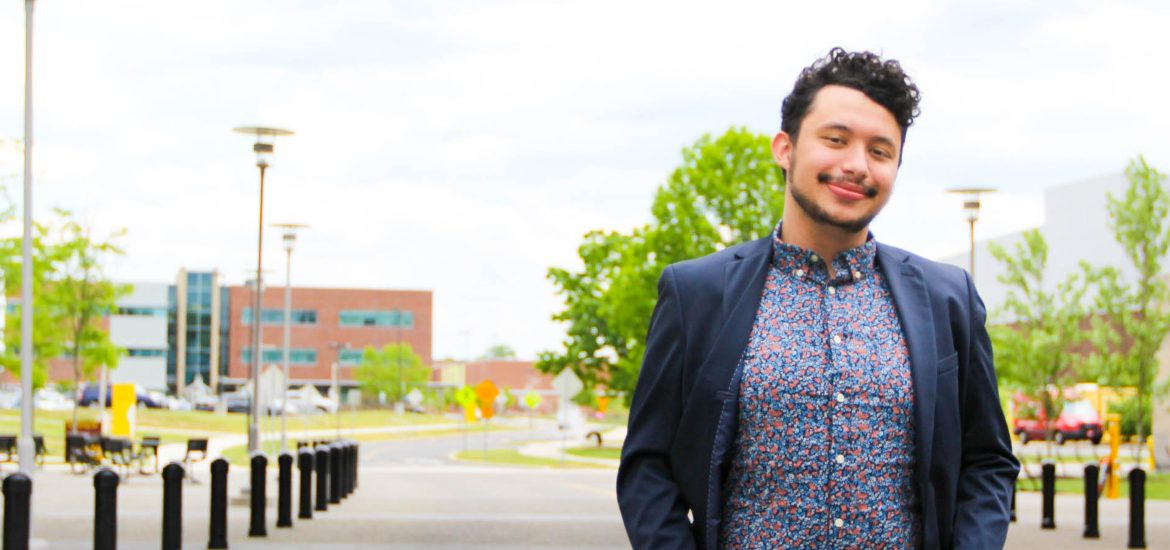
Donald “DJ” Ivy Jr. recently graduated from Rowan University in December 2020 with his bachelor’s degree in Computer Science. He is from Browns Mills, NJ (Burlington County) and transferred from Rowan College at Burlington County.
Could you please share your favorite moment with a faculty member or a favorite experience in one of your classes?
One of my favorite classes that I would tell anyone to take is Computer Lab Techniques. It’s a class anyone can take because it teaches you all the ins and outs of shortcuts on the computer. We’re required to take it as Computer Science majors, but I think it’s a more universal class for anybody who wants to learn more about computers. We learned directories and even how to program a clock, like the ones found in microwaves.
Could you please share your favorite social memory?
I made a lot of friends in Robinson, specifically in the computer lab. When I transferred to Rowan, I was already a junior and knew that there were already established friend groups made with people who have been here since freshman year. I’m a pretty shy person, so it took me a couple months; but once I opened up, my friends and I started going to the events at the Student Center. In high school and community college, I didn’t know a lot of Computer Science majors, so it’s been so cool meeting so many new people with the same major as me.

What are your career aspirations?
I was fortunate enough to find a job right after college. I’m currently working at McKesson, we’re a pharmaceutical distribution company, but I want to do more. I want to work for a bigger company or maybe try and do a start-up, but that I need the experience first, I can’t just make a business out of nowhere. I have thought about coming back to Rowan to get an engineering degree. Computer science deals a lot with the software of computers and applications, and I want to be more well-rounded and involved in what the computers actually do and would want to know how to fix a computer if it ever breaks.
How did the people or programs at Rowan help to support you with your professional growth or career aspirations?
My advisor, Mike Schillo, was a really big part of getting me on the right path and figuring out what I wanted to do within my major. There are a lot of computer science classes that all count towards graduation, but if you wanted to specialize in something specific they have a lot of different avenues you could take.
Do you want to give a thank you shout out to your family, friends, advisors or mentors?
I want to thank my parents and shout out to two friends who also went to Rowan but I have lost contact with: Joe Barton and Siobhan McGuinness. They were two people in my life who made me want to come to Rowan in the first place.

Who is your favorite professor and what class did you take them for?
Professor Mansaray, I took him for Software Development. He was such a down-to-earth guy and very straightforward. He let us in about everything we’ll need to know. He made all my worries about post-graduation just go away. He told us to build up a portfolio, and what’s so nice about my program is that we do so many projects that by the time we leave, we already have things to put in a portfolio.
What advice would you give to incoming freshmen or transfers about making the most out of their college experience?
Focus on what you really want out of life, this is the time to do it.
Like what you see?
Story by:
Caitlyn Dickinson, senior public relations and advertising major
Photos by:
Joe Gentempo, senior art major
TRANSFERmation Tuesday: Psychology Major Joshua Olumakin Shares Insight On His Major

Joshua Olumakin, senior Psychology major and transfer student from Rowan College of South Jersey, talks with us about his experience in his major here at Rowan.

Joshua became interested in psychology after watching and listening to his mother’s online psychology courses she took in pursuing her master’s degree.
Along with studying psychology, Joshua is a photographer; he uses what he knows from his courses to enhance his photos.
“I want to pursue photography more after graduation. It’s one of my passions, and my major supports that by understanding others and myself as I grow,” he says.
Joshua realized he was in the right major from talking with other people about psychology. What excites him most about psychology is the people. “I really enjoy interacting with people, it excites me and it’s what gets me more interested in this major,” he adds.

When asked to share one cool thing about his major, Joshua says, “Reading people. You tend to pick up on habits of people and how they are. It’s amazing the way you expect things to be and then see them exceed your expectations. It’s strange.”
Like what you see?
Story by:
Caitlyn Dickinson, senior public relations and advertising major
Photos by:
Stephanie Batista, sophomore music industry major
TRANSFERmation Tuesday: Aspiring College Professor Holly Zurenda

Today we speak to Holly Zurenda, a senior Computer Science and Mathematics double major. A Rapid City, South Dakota native, Holly attended Black Hills State University and South Dakota School of Mines & Technology before transferring to Rowan University ten years later. Holly commutes from Egg Harbor Township, NJ (Atlantic County). Holly is set to graduate in December 2021.

How was your transition into Rowan?
The process was amazingly simple. I had originally applied to be in the Combined Advanced Degree Program (CADP) in Subject Matter Education for Math and Science majors. Then, somebody had mentioned Computer Science and told me to try that degree program instead to see if I would like that more. I didn’t really know what I wanted to do. I thought I would teach, but I liked math more, so I ended up in the Computer Science program.
Could you share a moment when you felt that Rowan was the right place for you?
I think most of all, it’s the professors. I feel like every professor is always willing to help. They help within office hours. They’ll schedule meetings with you outside of office hours if you need help. I think definitely it was the professors who have made this experience the best that it can be for me.
What are you most excited about when Rowan returns to face-to-face learning?
I think I’ll be most excited to work as a team with people in person, rather than on group calls. It is a little more difficult to work in a group online, especially when it’s computer science. Everybody has something up on their screen and we can’t all share our screens at once. I’m definitely most excited to do a group project in a true group fashion.
What are your plans for after you graduate from Rowan?
I think I will get a master’s degree in Computer Science. Then, I will get a Ph.D. in Computer Science. I want to teach Computer Science at a college level.
What are you passionate about in your majors?
I wouldn’t say that my passion is truly for computers, science or math. My passion is actually teaching people. I seem to have a knack for it, and computer science is a high-need area. Most people don’t understand math and therefore they don’t understand computer science or vice versa, so I just figured it would be an excellent subject that I could actually help people learn about.

How was transferring to Rowan the right choice for you?
I think that overall, it comes down to flexibility. A lot of colleges put a cap on how far you can commute, and I could commute from an hour away to Rowan. Also price-wise, it was better for me than other colleges. Overall, I just think Rowan is a pretty standup school.
Do you have any advice for someone else who is returning to college after a long hiatus?
It’s definitely going to be difficult at first, but don’t give up. You will get back into the swing of things so quickly if you just keep trying.
Like what you see?
Story and photos by:
Rachel Rumsby, sophomore communication studies and public relations double major
Meet Transfer Profs: 3+1 Psychology Student and Mother Victoria Hable

Today we speak to Victoria Hable, a first-generation college student and mom from Harrisburg, Pennsylvania. Victoria transferred from Harrisburg Area Community College to Rowan College at Burlington College. She will transfer to Rowan University in the fall as part of the 3+1 program. Victoria is majoring in Psychology and will graduate next spring.

Can you tell me a little about the 3+1 program that you’re currently enrolled in?
I’m in the 3+1 program for Psychology. The 3+1 program is going to Rowan College at Burlington County (RCBC) for three years and transferring to Rowan and finishing a bachelor’s degree there for one year. I was a Music Business major at Harrisburg Area Community College. When I transferred to RCBC, I changed my major to Psychology. I had a lot of credits from the Music Business program that my 3+1 advisor Diana helped me work in as some extra electives so it wouldn’t delay my graduation date. From there, I created a plan to complete my last two years of my bachelor’s degree at RCBC and Rowan.
How did you hear about Rowan and what made you want to come here?
I moved to the area two years ago for a change of scenery. I was able to live with family and babysit for them. I started at RCBC in 2018 to finish up community college, and I found out about the 3+1 program while I was there. I started the program when I was a year into my time at RCBC, and that is how I found out about Rowan.

What is it like to balance being a mother with being a student?
It’s difficult. It’s definitely a lot. My son was born with Down Syndrome, so he has a lot of therapies and appointments. Balancing his appointments, my appointments and schoolwork is a lot. I’m not working, so it gives me a little more leeway in my schedule, but my job right now is to take care of him and finish school.
How has Rowan supported you in being a mother and a student?
It was two weeks into the spring semester, last January when I went to Diana, my advisor. I told her I had just found out I was four months pregnant, and I didn’t know what to do with my 3+1 plan. She helped me rearrange my plan to accommodate my being out for six weeks. I was out over the summer, so it only put me behind by two classes. It did not move my graduation date back at all. Instead of encouraging me to take a semester off because I found out I was pregnant, my advisor encouraged me to keep going. Diana was very dedicated to helping me figure out a new plan and stay in college like I wanted. The professors I have had so far are also willing to work with me.

How does your son motivate you to continue to pursue your career?
I had some prenatal testing that was done about five months into my pregnancy, but I didn’t know until my son was actually born that he was 100% going to have Down Syndrome. Last May, I saw that the first student with Down Syndrome graduated from Rowan University last year. That was really cool for me to see, and that gave me more motivation to keep pushing to pursue my career and more motivation that my son might be able to go to college. Seeing that student graduate is also the reason why I decided to name my son Rowen. Rowen is in therapy twice a week, we’re working with him constantly. Seeing his resilience to everything and how he adapts to his environment is a big motivator for me, especially me being a psychology major. Watching him grow and learn new things is so fun, and it just makes me want to learn more about him and more about neuro-psychology.
Do you have any advice for any current or incoming Rowan students that are also moms?
Since COVID has happened, I have met online classmates who are moms as well. But as for advice, if you have a support system, take advantage of it. The school is 100% percent behind you to help. But I think the biggest thing is just to stick with it. Even if it gets a little heavy sometimes.
What are your goals after you graduate?
When I switched my major to Psychology originally, I wanted to pursue my master’s in Psychology. I wanted to apply for the FBI and work in forensics. But since I’m a Mom now, I had to change my path a bit. Now, I eventually want to get into trauma psychology and maybe criminal justice reform.
Like what you see?
Story by:
Rachel Rumsby, sophomore communication studies and public relations double major
Photos by:
Stephanie Batista, sophomore music industry major
Beyond the Classroom: Cultural Clubs and Landing Internships with JT Kurtz

Internship & Experiential Learning Stories Learn how Rowan Profs go Beyond the Classroom to grow professionally, as well as personally, through internships and other experiential learning. Experiential learning includes hands-on learning opportunities provided through research, student clubs, campus leadership, student worker jobs, service-learning projects and volunteerism. In addition, Rowan’s Office of Career & Professional Development provides career support that’s more than just […]
Meet Transfer Profs: Psychology Major Rosetta Briscoe

Meet incoming transfer Prof Rosetta Briscoe. Rosetta is a Psychology major from Pemberton, NJ who transferred from Rowan College of Burlington County. She shares how she chose Rowan University and what she’s looking forward to!

Welcome to Rowan! Could you share with us one thing you are looking forward at Rowan University?
I’m looking forward to everything the school has to offer. I’m excited for the academic and personal growth that is to come.
What is one hobby, activity, sport or club that you’re involved in that you’d like to continue at Rowan?
I’m not active in any clubs, but I do have a hobby of jewelry making and singing. I would love to be a part of any club that inspires me to be creative and help individuals.
Is there anything you’re hoping to discover about yourself at Rowan? Grow a new skill? Try a new interest? Starting a new activity, sport or club?
I would like to explore my options and join clubs, be active, and perhaps try a new skill. I love learning something new and being able to apply the knowledge toward my degree.
What majors are you considering and why?
Psychology so I can help counsel, and perhaps business, so that I can have my own practice.

Did you tour Rowan or attend any virtual events? If so, which ones, and what did you think?
I attended a virtual event for Psychology, it was informative and wonderful. I would recommend it to students.
Do you have advice for other transfers who haven’t committed to a school yet?
Do your research, then see which schools are the best fit for you. Think about the financial requirements, your academics, and what would be best for you.
Where are you going to live next year?
Commute from home.
What is one thing about Rowan itself that you liked?
I like that so far I have experienced people working together as a team to make sure students are able to succeed.
Like what you see?
Story by:
Bianca Torres, senior music industry major
Photos courtesy of:
Rosetta Briscoe
Meet Transfer Profs: Psychology Major Sara Brooks

Meet incoming transfer Prof Sara Brooks. Sara is a Psychology major originally from Orlando, Florida who transferred from Rowan College of Burlington County. She shares why she chose Rowan and what she’s looking forward to!

Welcome to Rowan! Could you share with us one thing you are looking forward at Rowan University?
I am looking forward to completing my bachelor’s degree in Psychology at a school that has progressive outlook on mental health and mindfulness.
If you are from out of state, why did you choose a university not in your home state? Why Rowan?
I grew up in Florida, and when I moved to New Jersey after getting married, I was lucky enough to find RCBC and enroll in their 3+1 program, which has given me the opportunity to transfer into Rowan University for my senior year and complete my bachelor’s degree in Psychology.
What is one hobby, activity, sport or club that you’re involved in that you’d like to continue at Rowan?
One [activity] that I look forward to becoming a part of is Rowan Thrive, especially in their Emotional Well-Being program. Stress and anxiety is something that all students face, and having resources that can help in learning how to navigate these emotions is important for everyone to discover their best self.
Is there anything you’re hoping to discover about yourself at Rowan? Grow a new skill? Try a new interest? Starting a new activity, sport or club?
I am really looking forward to exploring more in Student Services and learning how I can be of service to more transfer students like myself who are coming into a new university and the opportunities that are available.

What majors are you considering and why?
I am a senior psychology major due to my natural interest in learning about why people are the way that they are. I currently work as a Behavioral Health Technician at an alcohol and drug treatment center working toward completing a certification as a Certified Alcohol Drug Counselor. Being able to complete my bachelor’s degree at Rowan and continue on to a master’s degree in Clinical Psychology is my goal, where I will focus more on dual diagnosis aspect of addiction.
Did you tour Rowan or attend any virtual events? If so, which ones, and what did you think?
Due to COVID being very present in my time of transferring to a university, I have only been able to attend virtual events and I have really enjoyed them. Being able to schedule Zoom advising sessions and talk with an advisor one-on-one has been so helpful in planning my future goals.
Do you have advice for other transfers who haven’t committed to a school yet?
Not to focus too much on where you want to transfer schools to but why. Look into schools that offer programs that you could see yourself being a part of after graduation and that have programs that you could see yourself being a part of.
Where are you going to live next year?
Commute from home.
What is one thing about Rowan itself that you liked?
I really liked that they offer so many courses in Psychology that focus on research and the study of behavior, especially mindfulness, and that they offer a Philosophy track as well.
Like what you see?
Story by:
Bianca Torres, senior music industry major
Photos courtesy of
Sara Brooks
Meet Transfer Profs: Human Services & Psychology Major NyEsha Cintron


Meet incoming transfer student NyEsha Cintron. NyEsha is a first-generation Human Services and Psychology major from Maple Shade, NJ (Burlington County) who transferred from Rowan College of Burlington County. She shares how she ended up at Rowan and what she’s looking forward to!
Welcome to Rowan! Could you share with us one thing you are looking forward at Rowan University?
I am looking forward to meeting new people, the ability to foster lasting relationships and grow in experience with my area of study. I am excited to see how school will impact my life as well as how I will impact the lives of others.
What is one hobby, activity, sport or club that you’re involved in that you’d like to continue at Rowan?
I’d like to get involved in the Human Services Club or a language club.
Is there anything you’re hoping to discover about yourself at Rowan? Grow a new skill? Try a new interest? Starting a new activity, sport or club?
I will be taking a Spanish class, and I’d like to see my knowledge increase in this language to speak it fluently.
What majors are you considering and why?
I am a Human Services and Psychology major through and through. I love learning how to better understand people in efforts to better serve them. These majors are very organic to how I am wired, and I feel that I can be my best by furthering my education in these areas of studies.
Did you tour Rowan or attend any virtual events? If so, which ones, and what did you think?
I haven’t had the time to do so, but am awaiting orientation for transfer students, can’t wait!
Do you have advice for other transfers who haven’t committed to a school yet?
Do it and get started!
Where are you going to live next year?
Commute from home.
What is one thing about Rowan itself that you liked?
I like that Rowan participated with community colleges to ensure continuity of learning to a accredited university.
Like what you see?
Story by:
Bianca Torres, senior music industry major
Bioinformatics: Problem Solving, Personal Medicine [VIDEO]

The Rowan Global M.S. in Bioinformatics (M.S.) program prepares you with skills that immediately contribute in the pharmaceutical, biotechnology and biomedical fields.
Meet Transfer Profs: Fabrizio A. Galindo of Whiting, NJ


Meet incoming transfer Fabrizio Galindo, who will live on campus in the fall. Fabrizio is a first generation college student and an aspiring Biological Sciences major from Whiting, NJ (Ocean County) transferring from Stockton University.
Welcome to Rowan! Could you share with us one thing you are looking forward at Rowan University?
I look forward to growing as a person while achieving my academic goals and succeeding at all the dreams I set my mind to.
What is one hobby, activity, sport or club that you’re involved in that you’d like to continue at Rowan?
Most of my time I spend studying online. I think I would like to try an Honor society and develop my hobbies with them. I found that to be a lot more ideal.
Is there anything you’re hoping to discover about yourself at Rowan? Grow a new skill? Try a new interest? Starting a new activity, sport or club?
I found out that Rowan’s science department is among the best ones in NJ. I feel that involving myself in Physics and Math clubs would be a set of new skills I will like to grow.
What majors are you considering and why?
Biology, Biophysics and physics. I have always wanted to study sciences and these are the best sciences to take if you like particles.
Did you tour Rowan or attend any virtual events? If so, which ones, and what did you think?
I have not done so due to Covid. I would like to go to Rowan’s Church and the science building I’m also curious about the Engineering building, I heard they have a pretty good signal.
Do you have advice for other transfers who haven’t committed to a school yet?
Please look at all of your opportunities, you have no idea what you are going to miss on if you don’t check Rowan out.
What is one thing about Rowan itself that you liked?
Other than Dr. Ali A. Houshmand having graduated in mathematics, I liked the University’s private scholarships and the Honors concentration.
Like what you see?
Story by: Bianca Torres, senior, music industry major
Meet Transfer Profs: Future Marine Biologist Malin Barnes


Meet incoming transfer student and Biological Sciences major Malin Barnes. Malin is a transfer from Eastern New Mexico University and is originally from Abilene, Texas. He shares more about what he’s looking forward to and why he chose Rowan.
Welcome to Rowan! Could you share with us one thing you are looking forward at Rowan University?
Advancing my academic career and exploring the music culture on campus.
Why Rowan?
I was stationed in New Jersey from Texas. Rowan seemed to be the best fit for transferring my credits to, and the programs seems very credible and comprehensive.
What is one hobby, activity, sport or club that you’re involved in that you’d like to continue at Rowan?
Symphonic band/pep band and Greek life.
Is there anything you’re hoping to discover about yourself at Rowan? Grow a new skill? Try a new interest? Starting a new activity, sport or club?
If possible, I’d like to explore more marine-based skills and explore all the benefits of living in a coastal state.
What major are you considering and why?
Biological Science. I want to work towards a master’s of marine biology to pursue a career in coral reef conservation and restoration.

Did you tour Rowan or attend any virtual events? If so, which ones, and what did you think?
I did do a private guided tour of the campus. It was very comprehensive and informative. Although a lot of the tour was focused on freshmen rather than a transferring student, it was fun to explore the campus as a new student would.
Do you have advice for other transfers who haven’t committed to a school yet?
If you want to focus on your career and not have a huge amount of your campus life spent on sports, Rowan is the place to go. It’s modern and up to date, and isn’t overburdened with a focus on high-level sports.
What is one thing about Rowan itself that you liked?
The lack of a football focus. Back home it’s all about college sports, but Rowan feels more like a school focused on education.
Like what you see?
Story by:
Bianca Torres, senior music industry major
We are #RowanPROUD to be included on Phi Theta Kappa Honor Society’s 2021 Transfer Honor Roll, which recognizes select nationwide colleges and universities that foster dynamic pathways for transfer students.
Senior Jerico Mellet’s Favorite Class: Molecular Biophysics

This story is a part of the “My Favorite Class” series.
Today we speak to Jerico Mellet, a senior Biomedical Engineering major with CUGS in Training and Development and Management and Leadership. Jerico is a first-generation college student and off-campus renter from Gloucester County. He tells us about a course that left a lasting impression with him.

What is your favorite class?
My favorite class is Biophysics [now called Molecular Biophysics], which was taught by Dr. Nathaniel Nucci. The course is offered by the Physics Department.
Tell us a little about what the class is.
The class studied biological processes using Gibb’s Free Energy Equation. The equation includes entropy and enthalpy, and entropy is the part where probability comes into play. For instance, the reason our DNA gets read/copied properly is that the probability of the protein going forward and copying correctly is higher than it going backward and copying incorrectly.
The content of the class was very fascinating to me, and the way that Dr. Nucci taught the course was very effective. He didn’t spoonfeed us information; it was a lot like teaching us how to fish instead so we can independently make the discoveries and solutions.
That class was the first class that got me really interested and excited about science because before I’ve been studying math on its own like calculus, or studying biology on its own.
There was always some overlap, but the Biophysics (now it’s called Molecular Biophysics) class really connected the fields and put everything into a new perspective for me. We covered a lot of information, but not so much that it was overwhelming. He kept everything at an understandable pace.

Share with us a few details on why this class was interesting.
The class put what I knew about biology in mathematical/probabilistic terms, which changed the way I view science, biology and math.
Is there anything else that made this class impactful?
It pushed me beyond my comfort zone, and how he led the class toward understanding the concepts was empowering because he wouldn’t just give us the answers, but sometimes asked us questions to have us revisit what we thought we knew.

What makes this professor great?
He gave us the tools to figure out the questions. He’d walk around checking in on everyone, always made himself available, and was encouraging.
How did this class help to support your academic or personal growth or your professional goals?
It helped me see connections between different fields of science, biology and math. As I take further classes, I grow curious about other connections such as harmony in music and how harmonious movement could be energy efficient.
What are your professional goals?
Since I was born in Peru and speak Spanish, I want to go back and start a company there to provide healthy jobs for people and that would benefit the country as a whole, and eventually bring that to other countries around the world.
Like what you see?
Story and photography by:
Rachel Rumsby, sophomore communication studies and public relations double major
TRANSFERmation Tuesday: Psychology Major, HR Management Minor John Tully

Today, we speak to Psychology major and Human Resources Management minor John Tully. John, from Ramsey, NJ (Bergen County), is a transfer student from Bergen Community College.

What are your professional goals? And how is Rowan helping to support you in those goals?
I am going to Georgetown in the fall for a master’s in Human Resource Management. After that, I hope to work in global HR management. Rowan has Psychology majors take a professions and practice class, that is where I learned about HR master’s programs and realized that is the direction I wanted to go in. Also, I was able to add a Human Resources Management minor to my program which helped me stand out from other applicants to the programs I applied to.
How does your field impact the world? What impact would you like to have on the world in your field?
HR is a crucial part of business and has major influences globally. HR has the ability to influence workplace happiness, motivation and profitability. HR also creates a safe and inclusive workplace while ensuring legal compliance. I would like to work in global HR management by designing human resource programs that are able to be applied across multiple cultures.
What inspired you to choose your major?
I was originally a bio/mathematics major and took an Intro to Psychology class to fulfill an elective requirement. I fell in love with psychology because of how diverse and interesting it is. It is an amazing field, which can be related to nearly any topic of interest. I knew after taking that class that I wanted to change my major and pursue a career in some way related to psychology.
As a student from North Jersey, how did you become aware of Rowan University?
I read about Rowan while researching colleges to transfer to. Rowan is a well-ranked school with classes related to Industrial Organizational Psychology. That made it stand out from other schools.
How long is your trip/drive “home” to North Jersey?
Around two hours.

What are some of the benefits for you, living this distance from home?
I am far enough away from home where things feel different, but still close enough where visiting friends and family is easy. I wanted a change of scenery but I didn’t want it to be too difficult to visit family.
What are a few interesting or new things (to you) about Rowan’s South Jersey area that you would share with future out-of-state students?
Mostly that South Jersey is very different than North Jersey. They’re like different states. South Jersey has a slower, more relaxed energy. Also, South Jersey is beautiful. It isn’t as crowded or urbanized as North Jersey. I always enjoy driving around and just taking in the open space and beautiful farmland.
What off-campus, local fun places do you recommend students check out?
There is so much good food here and it is so much cheaper to dine out than in North Jersey. There are also vineyards and a brewery near by. Rowan hosts a lot of events. Plus, Philadelphia is only about 20 minutes away so you have the ability to have city life if you want.
Why did you choose to transfer to Rowan University?
Rowan is a well-ranked university with an impressive psychology program taught by respected experts in their fields. Also, Rowan offers classes about Industrial Organizational Psychology, which is my area of interest.
Like what you see?
Story by:
Bianca Torres, senior music industry major
Photography by:
Jabreeah Holmes, senior radio/TV/film major
We are #RowanPROUD to be included on Phi Theta Kappa Honor Society’s 2021 Transfer Honor Roll, which recognizes select nationwide colleges and universities that foster dynamic pathways for transfer students.
Faculty PROFile: Dr. Lisa Abrams’ Innovative and Inclusive Efforts Break Down Barriers to Education

Dr. Lisa Abrams, assistant professor of Psychology, joined the Rowan faculty in 2014. Dr. Abrams recently earned the Excellence in Online Learning Award from Rowan Global Learning and Partnerships for her work.

Dr. Lisa Abrams went above and beyond to assist students in transitioning to a “new normal.”
Rowan Global’s Excellence in Online Learning Award primarily highlighted two of her courses, Statistics in Psychology and Research Methods in Psychology. Well before Covid-19, these courses were offered both in-person and online when created four years ago to accommodate the fully-online Psychology program here at Rowan. Dr. Abrams coordinated and developed these classes herself.
Course materials within these classes are free thanks to the Textbook Alternative Program (TAP) grant provided by the university. After receiving the grant for both courses, Dr. Abrams and a colleague searched for free resources for students. She felt confident they would find a proper alternative to save students money.
She found an open-source textbook that also had permissions to allow students to download the free textbook as a PDF. “For the rest of the course, there is nothing else [the students] have to pay for,” she says. Even the statistical software options, Jamovi and SPSS, used in the statistics course were free to the students.
“Early on, I recognized that the textbook prices were a bit like a barrier for my students,” Abrams says. “And it’d be a month into the class, because they couldn’t get it. So it definitely takes away that issue.”
She also designed a one-credit course called Navigating Psychology for students who are new to the major. This course provides faculty with benchmarks to later measure students’ learning outcomes in the program. For the roughly 500 students who take the class each year, professors incorporate an introduction to the program into the course material, explaining who’s who within the psychology department, how students can meet with their college advisors, school policies, Rowan’s academic integrity policy and more.
Many students have attested the most important takeaway they received from the course was simply knowing essential, practical and timely information about psychology and the resources available to them at Rowan. The course serves as a roadmap to succeeding in Rowan’s psychology program and the university community in general.
Dr. Abrams strategically considered what it must be like for students to take on “the mental load of existing in a pandemic” as well as having to switch to a remote or hybrid college experience. In doing so, Dr. Abrams had to choose the most meaningful assignments to keep in the course.

Since creating her statistics course four years ago, Dr. Abrams redeveloped parts of it last spring. She made the quizzes as access gates to the next module to make sure students would not skip ahead and rather learn on schedule. The quizzes were designed more so as a practice test that would only accept a certain grade to move on, but can be taken as many times as needed to learn the material. Each quiz is different because the questions are chosen from a pool of questions that are given to different students and narrowed down.
She made this major change because she realized the importance of formative assessments. She aimed to make assignments that tested students’ knowledge without making them overly intimidating. Then the students will receive feedback immediately to quickly understand what they can improve on. This can guide the students to alter their study habits and remain on track with Dr. Abrams’ course goals. By doing multiple quizzes within a chapter, the students can find their level of understanding easily and at multiple points in the course.
Dr. Abrams’ favorite part of student engagement focuses less on the actual course material and more on developing positive relationships with the students. She enjoys being able to guide students in their learning process as well as making the teaching process easier — building trust between students and the professor can help students ask more questions.
She misses one-to-one interactions with students outside of class, which she still experiences now through Zoom or phone calls. Dr. Abrams continues to make time for students outside of class, which is invaluable for students, especially during the pandemic.
Her current research focuses on the topic of teaching, with multiple projects in the works at different stages. Dr. Abrams shares: “I tested if team-based learning is effective in teaching statistics in psychology. I have a project that is in big data collection right now about inclusive teaching practices and what students and faculty think about them and how much [the faculty] are using these types of strategies.”

Dr. Abrams wishes people knew that psychology is a science. She explains that psychology uses the same scientific method used in other “hard sciences” to test all theories and in every field within psychology. She knows that many people misconceive this science because it deals with humans, making it appear “softer in a way.” She appreciates the fact that Rowan placed psychology under the College of Science and Mathematics (CSM), which did not match Dr. Abrams’ experiences at other colleges.
Like what you see?
Story by: Marian Suganob, public relations major
Leadership #PROFspective: Photography Club President Jill Taylor
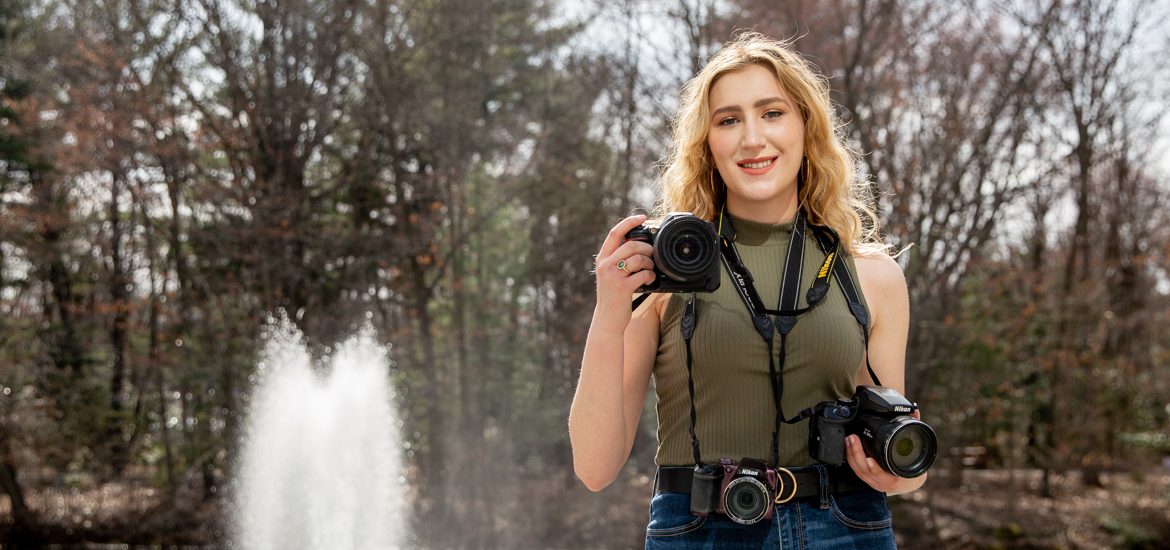
Internship & Experiential Learning Stories Learn how Rowan Profs go Beyond the Classroom to grow professionally, as well as personally, through internships and other experiential learning. Experiential learning includes hands-on learning opportunities provided through research, student clubs, campus leadership, student worker jobs, service-learning projects and volunteerism. In addition, Rowan’s Office of Career & Professional Development provides career support that’s more than just […]
Leadership #PROFspective: Shivani Shah, Cofounder Of South Asian Students Association (SASA)

Today we feature Shivani Shah, a leader at Rowan University. Shivani is cofounder of South Asian Students Association (SASA) and currently serves as its copresident. Shivani is a junior, first-generation college student from Egg Harbor Township, NJ (Atlantic County). She majors in Biochemistry and has a minor in Psychology. This story is part of a […]
Leadership #PROFspective: Yashaswi Parikh, Uplifting Leader, Cofounder and Copresident of Rowan SASA

Today we speak with Yashaswi Parikh, cofounder and copresident of the Rowan South Asian Students Association as well as sunshine chair of Alpha Phi Omega (APO). As sunshine chair, she works to bring joy and happiness to the organization! Yashaswi is a senior Biological Sciences major and Spanish minor who is part of the 3+4 […]
Leadership #PROFspective: Catherine Nguyen, Cofounder of Rowan Vietnamese Student Association

Today we feature Catherine Nguyen, a leader at Rowan University. From Washington Township, NJ (Morris County), Catherine majors in Biological Sciences and minors in Chemistry, Sociology and Thomas Bantivoglio Honors Concentration. She talks about her experience with the Vietnamese Student Association (VSA) and overall experience as a student leader. This story is part of a series spotlighting campus […]

